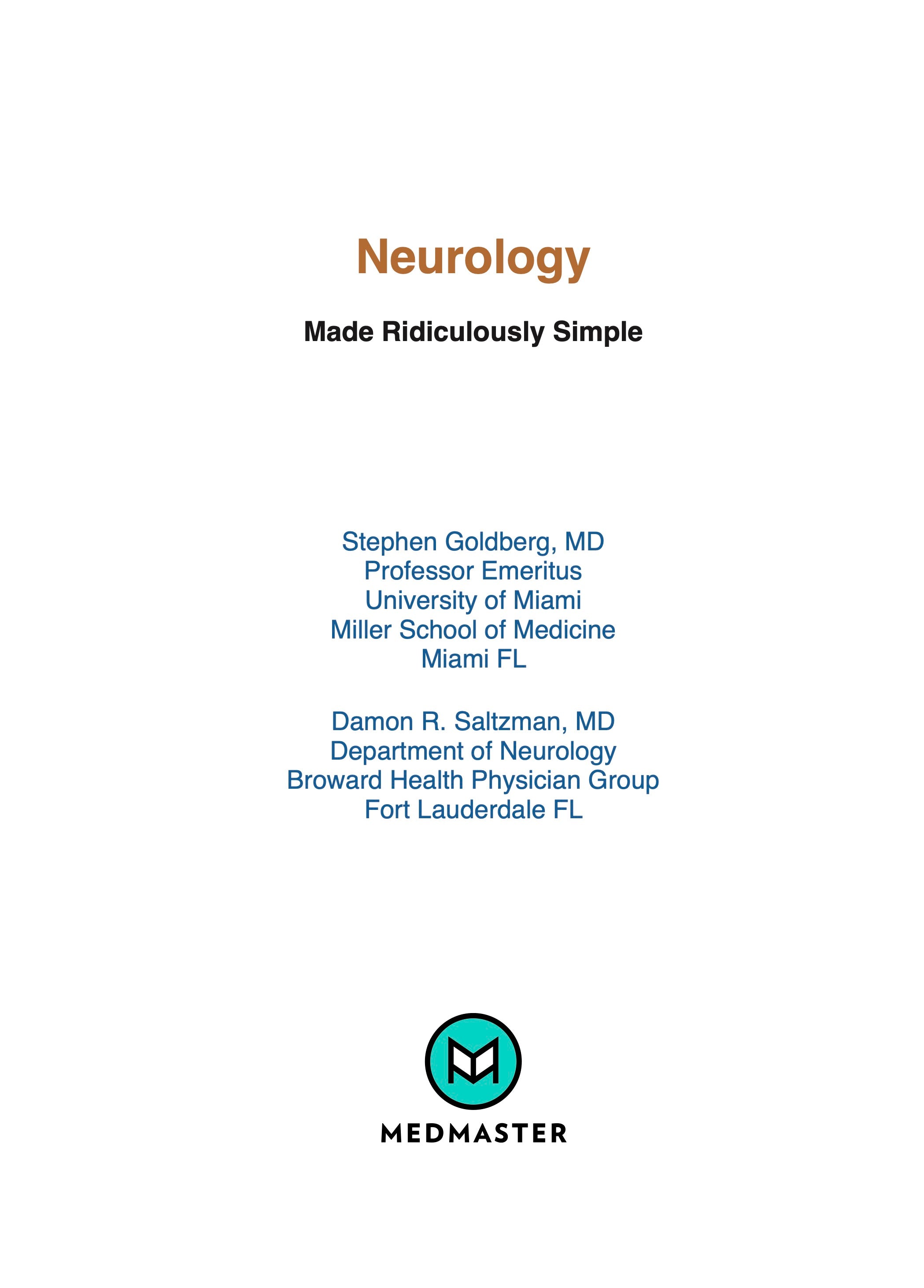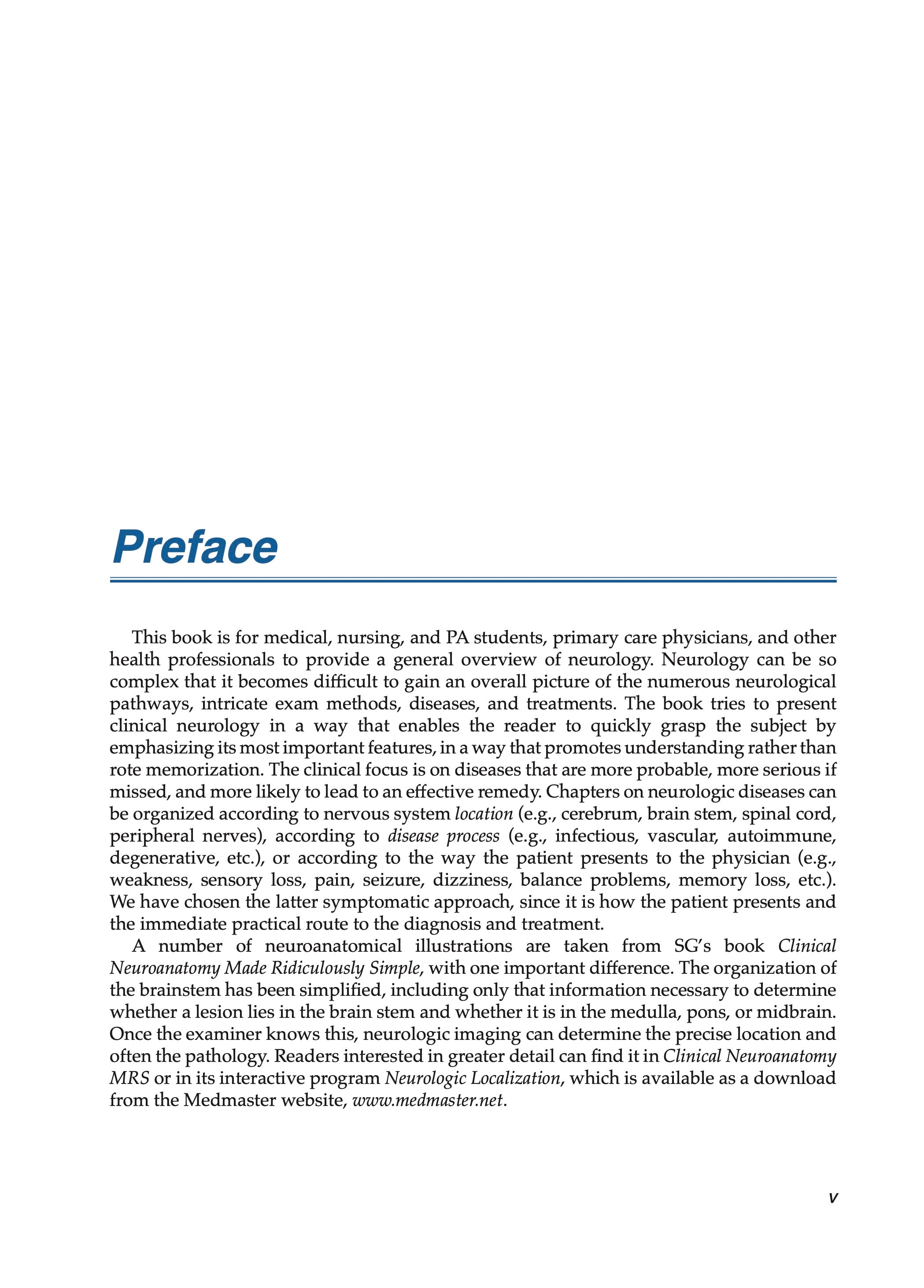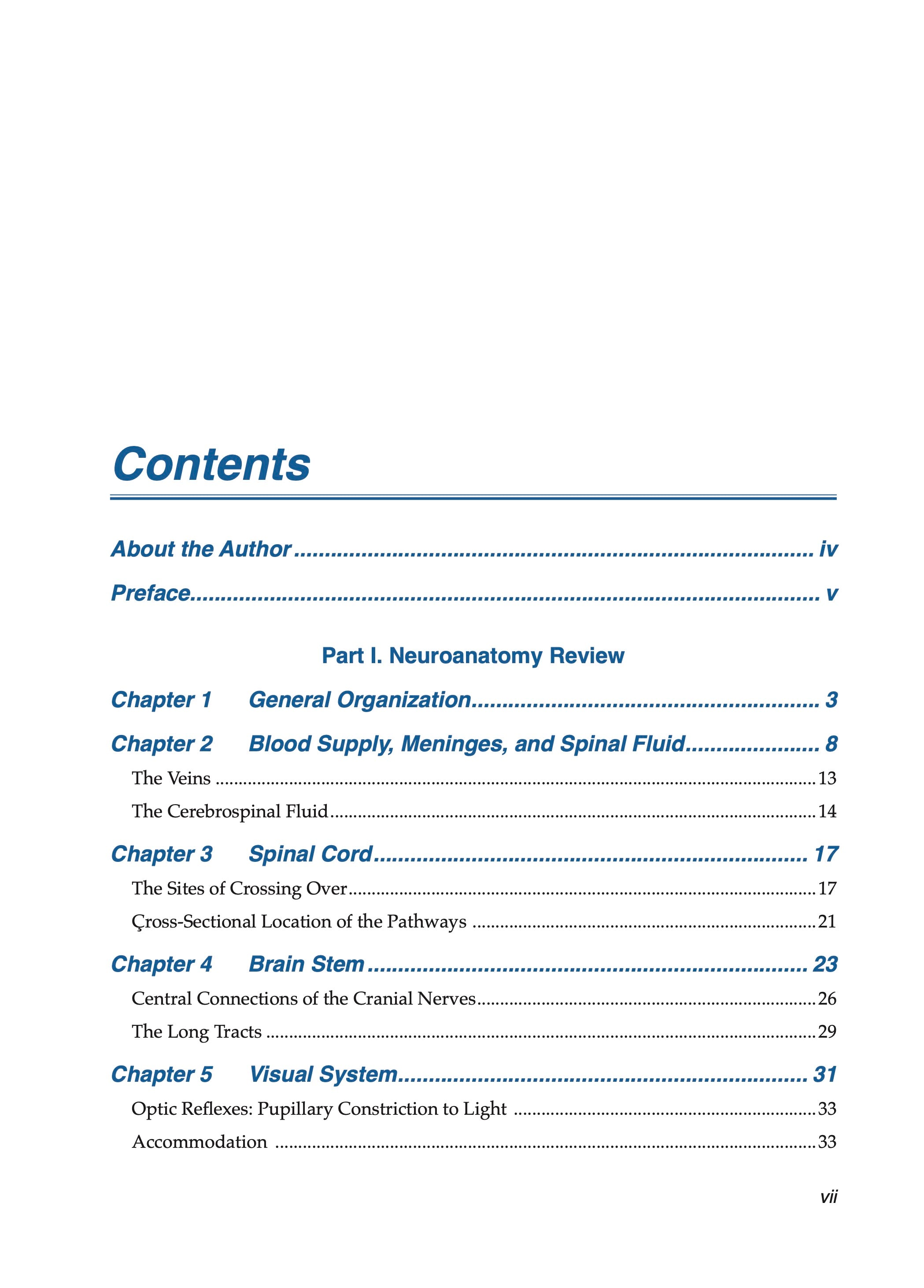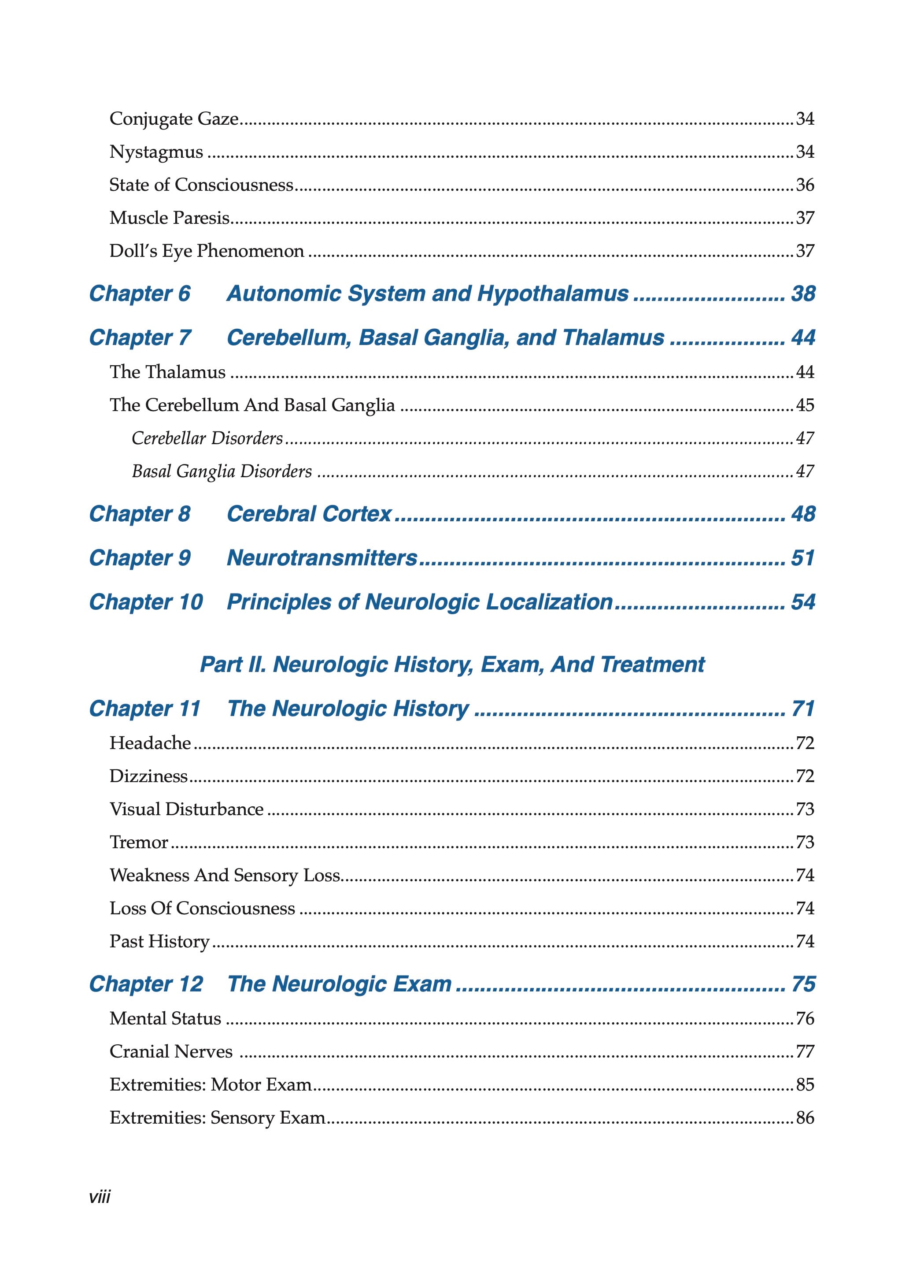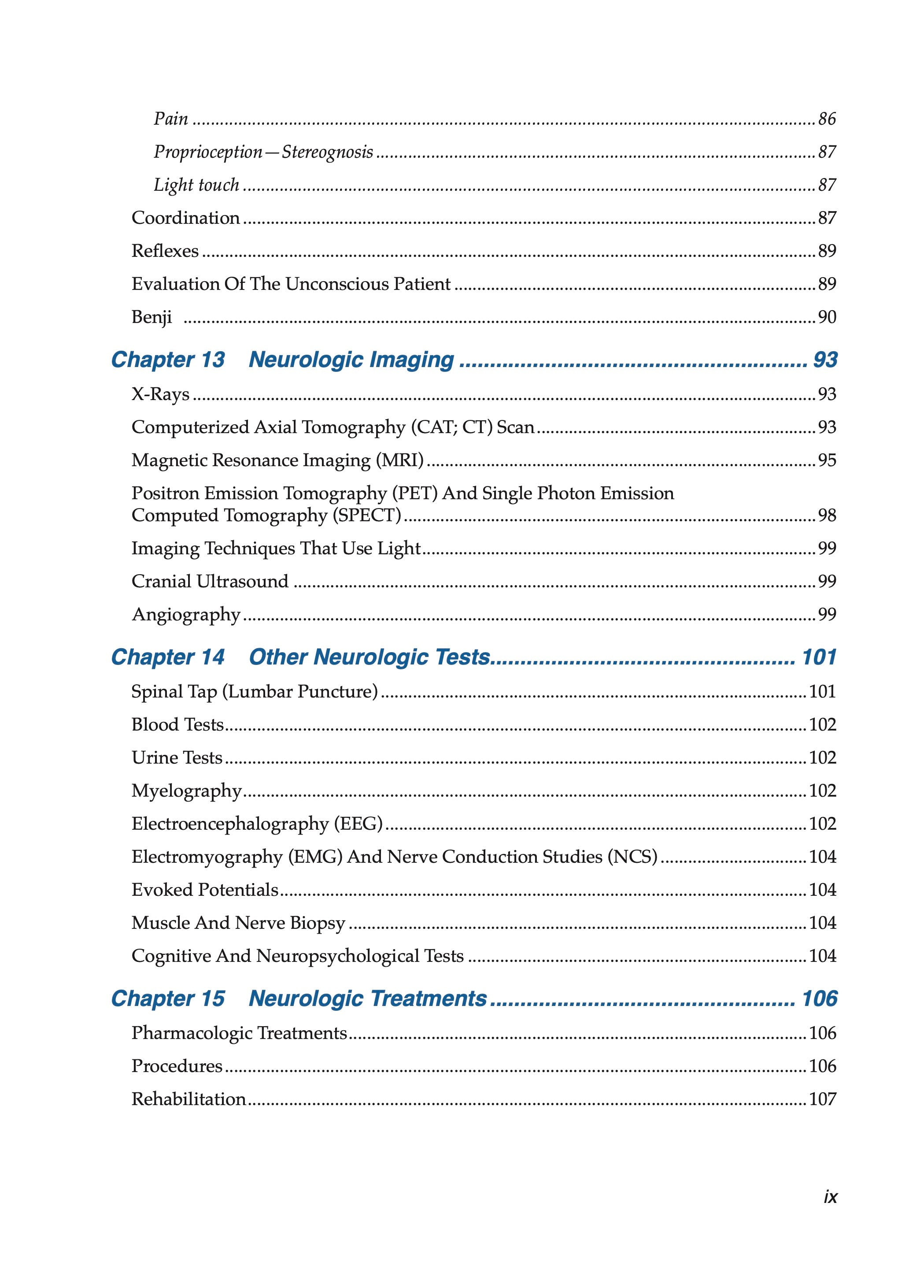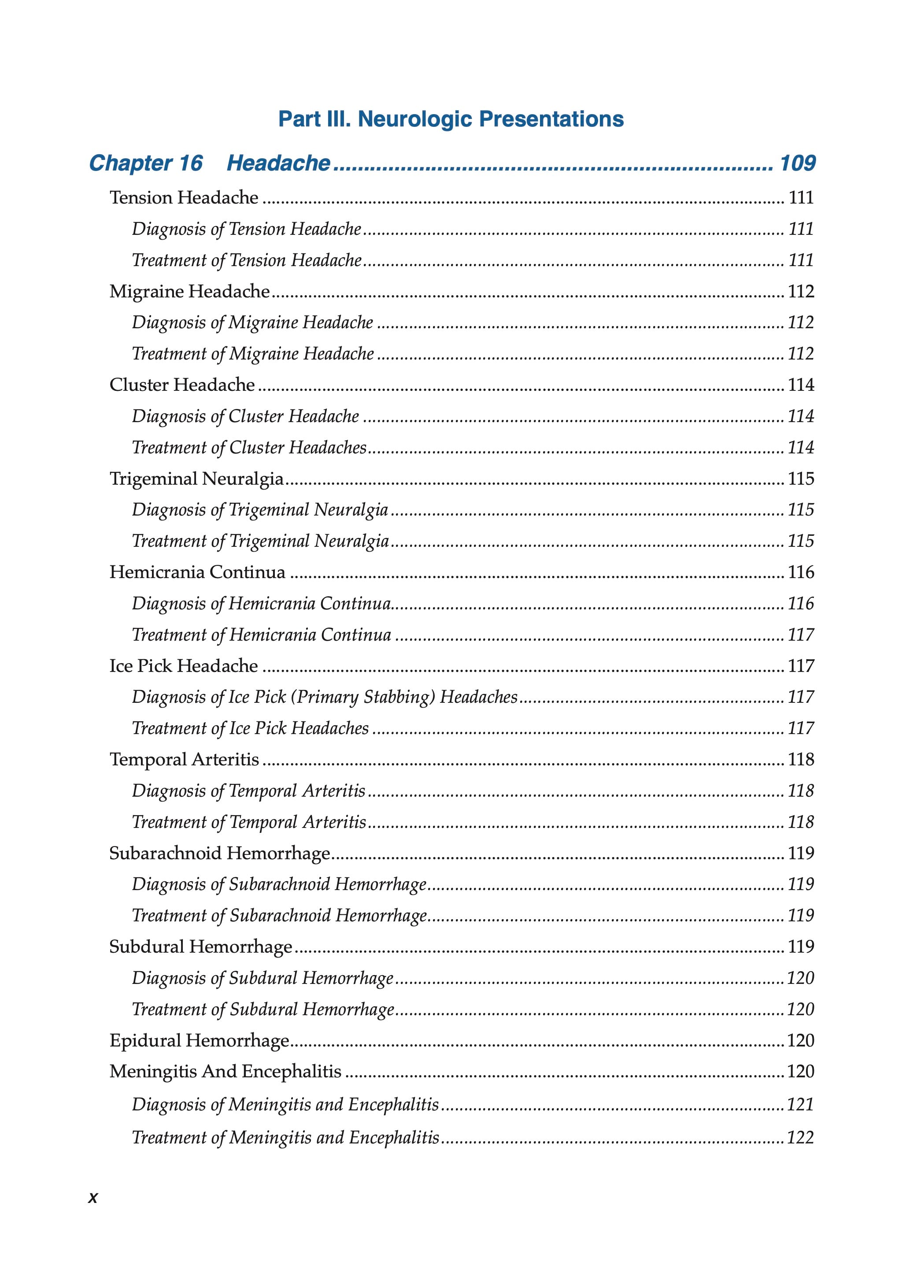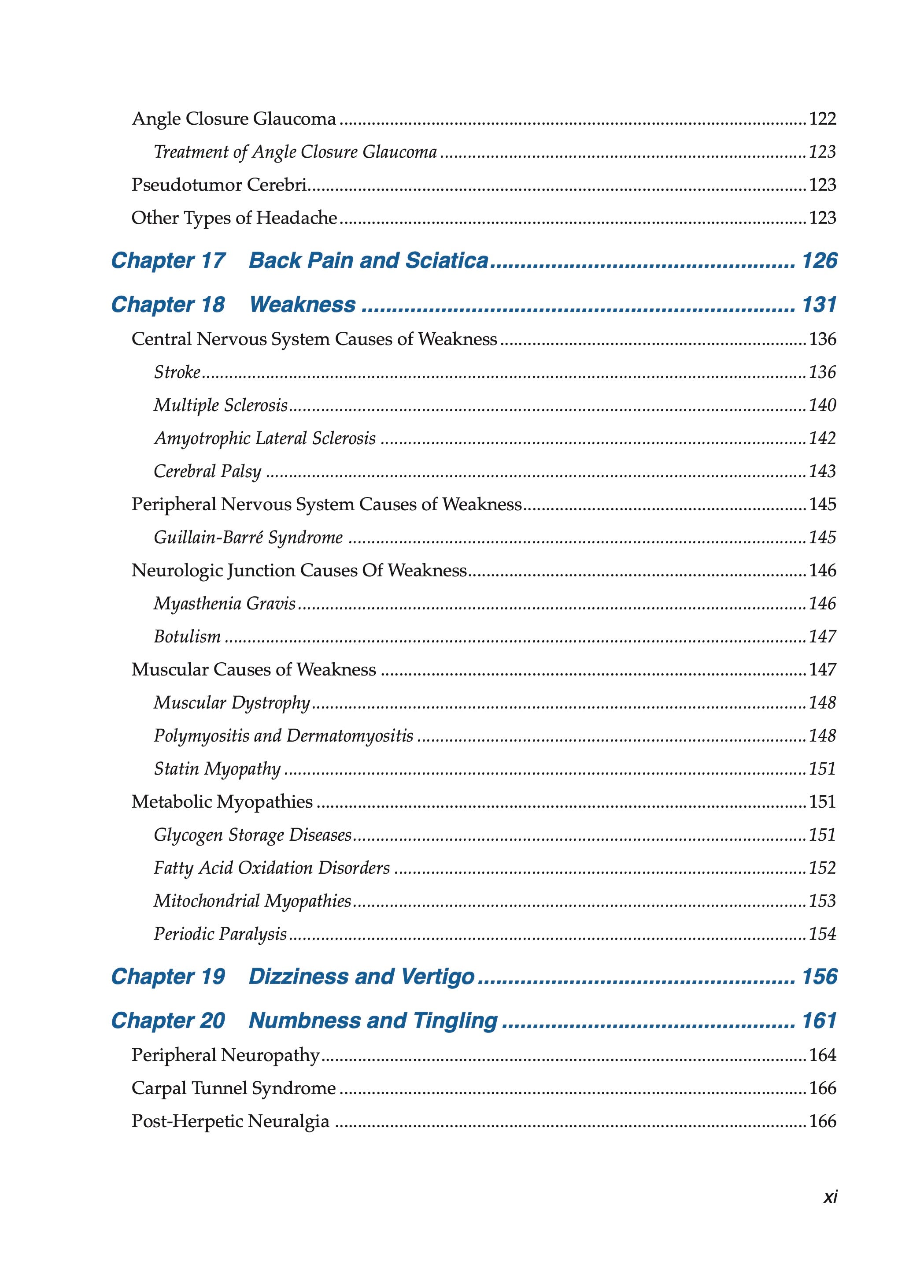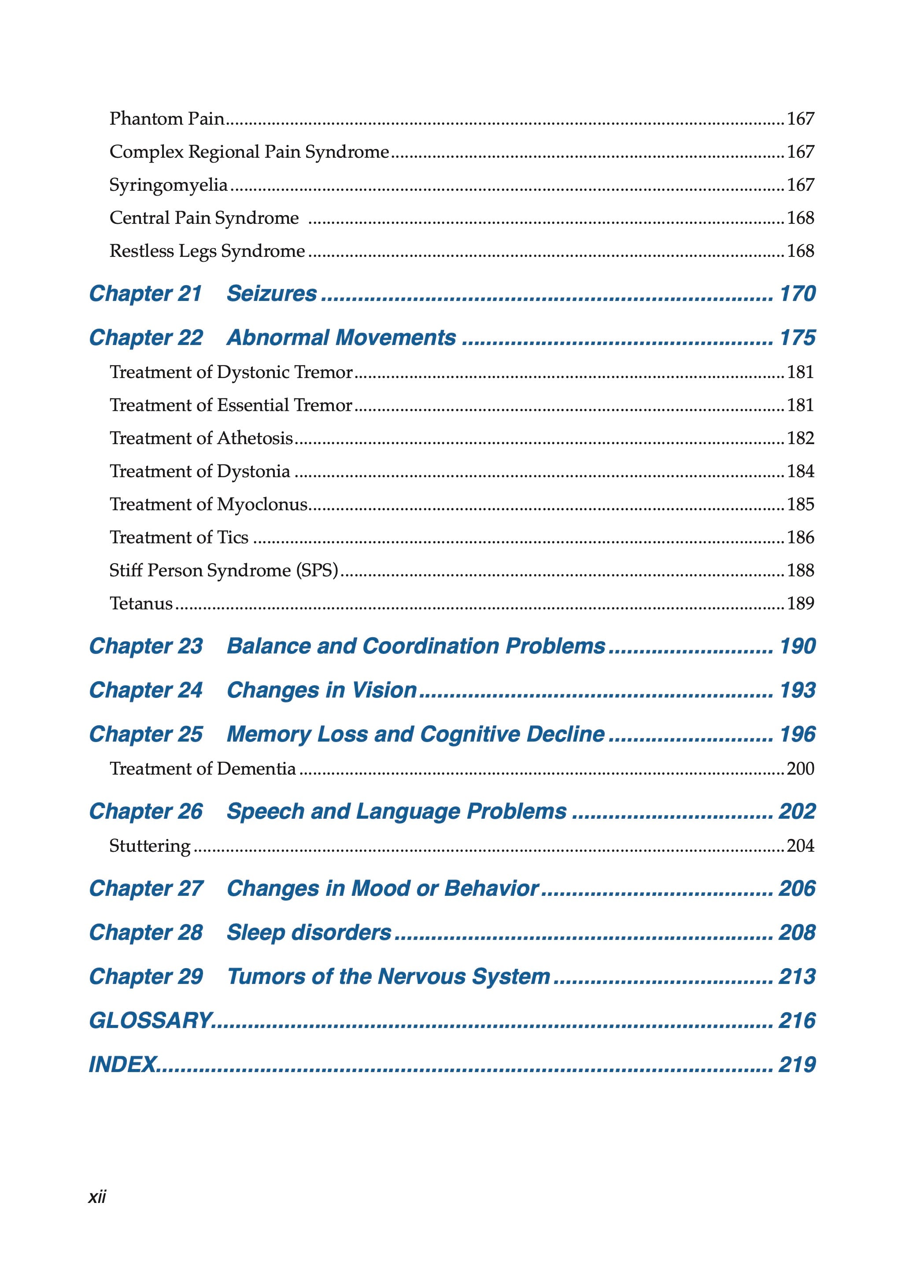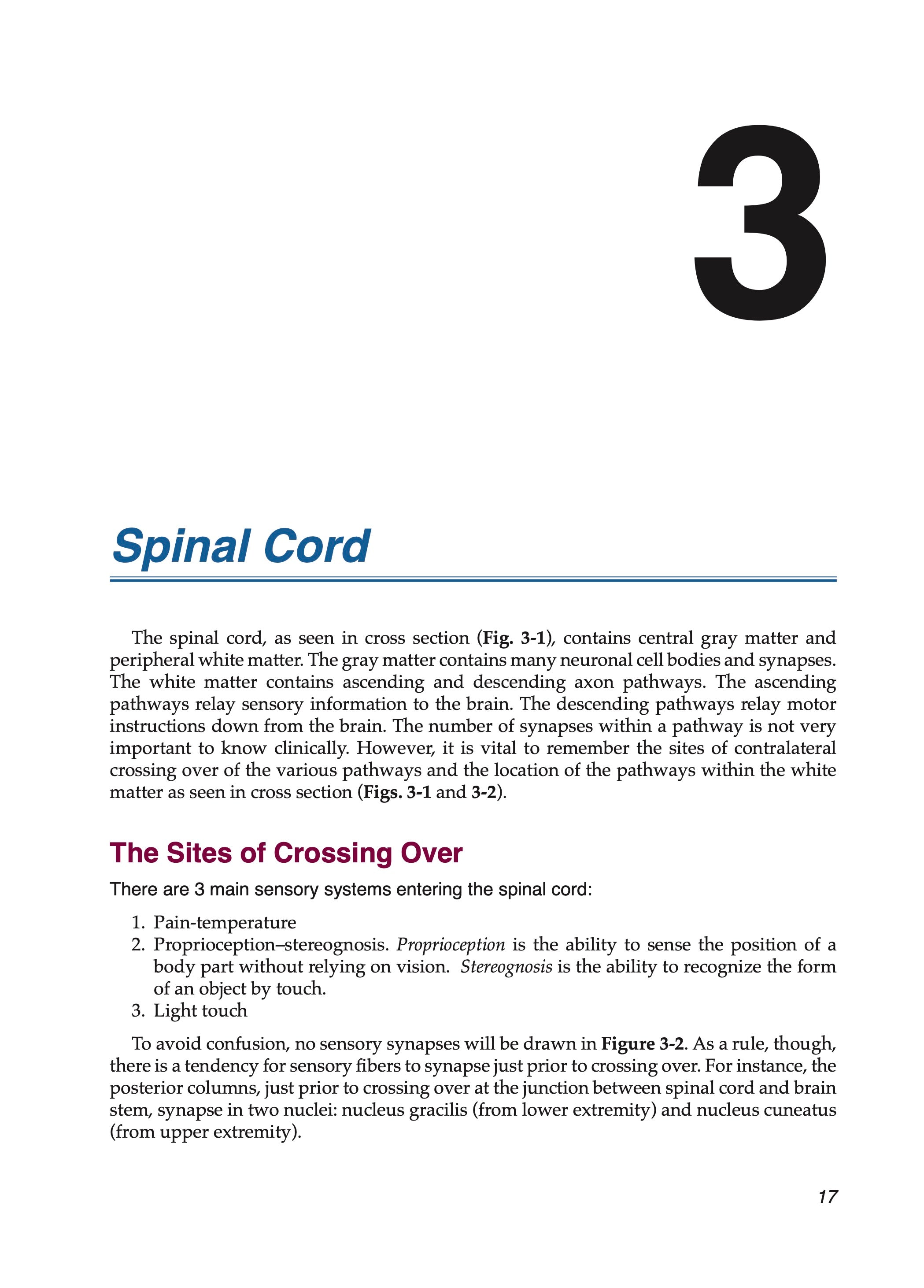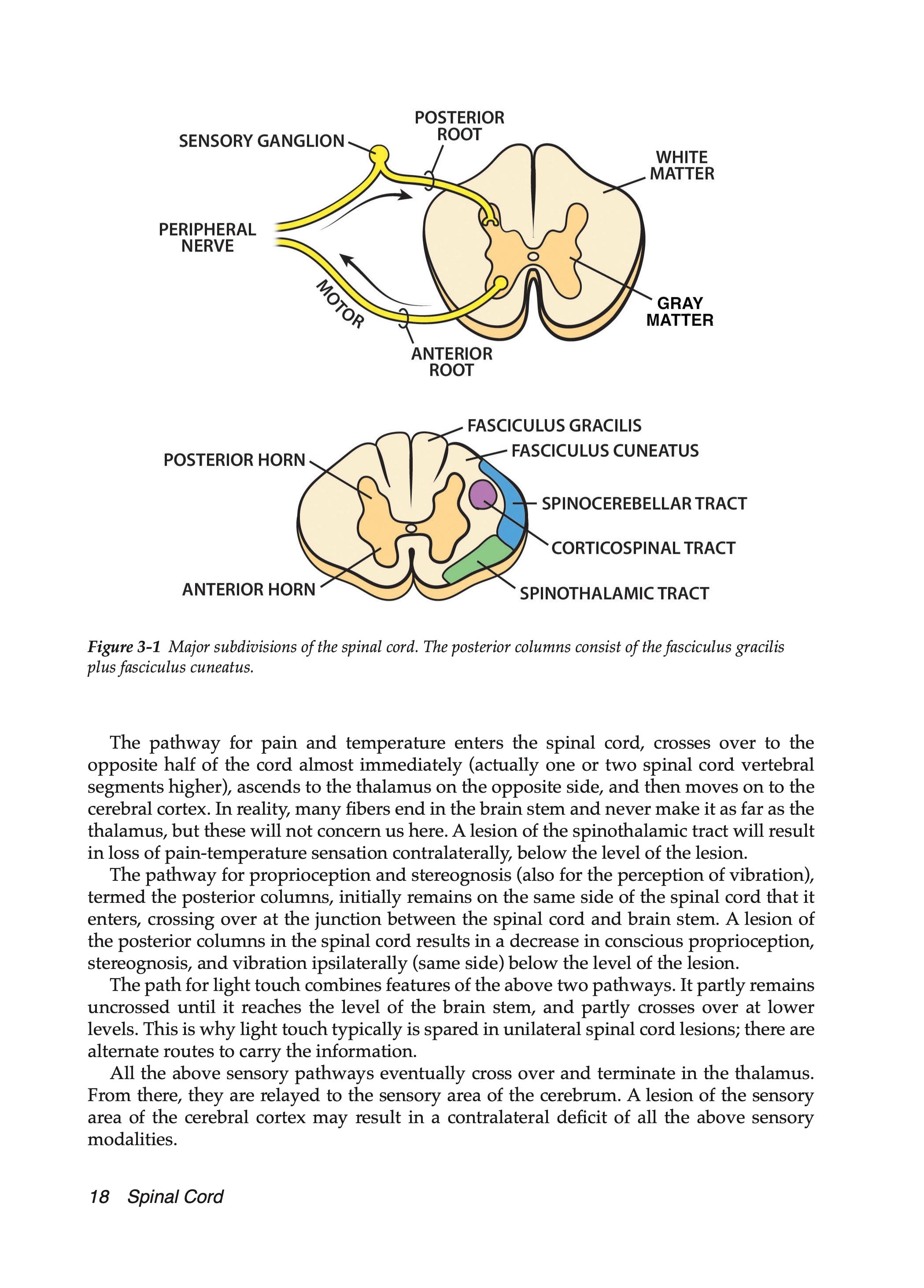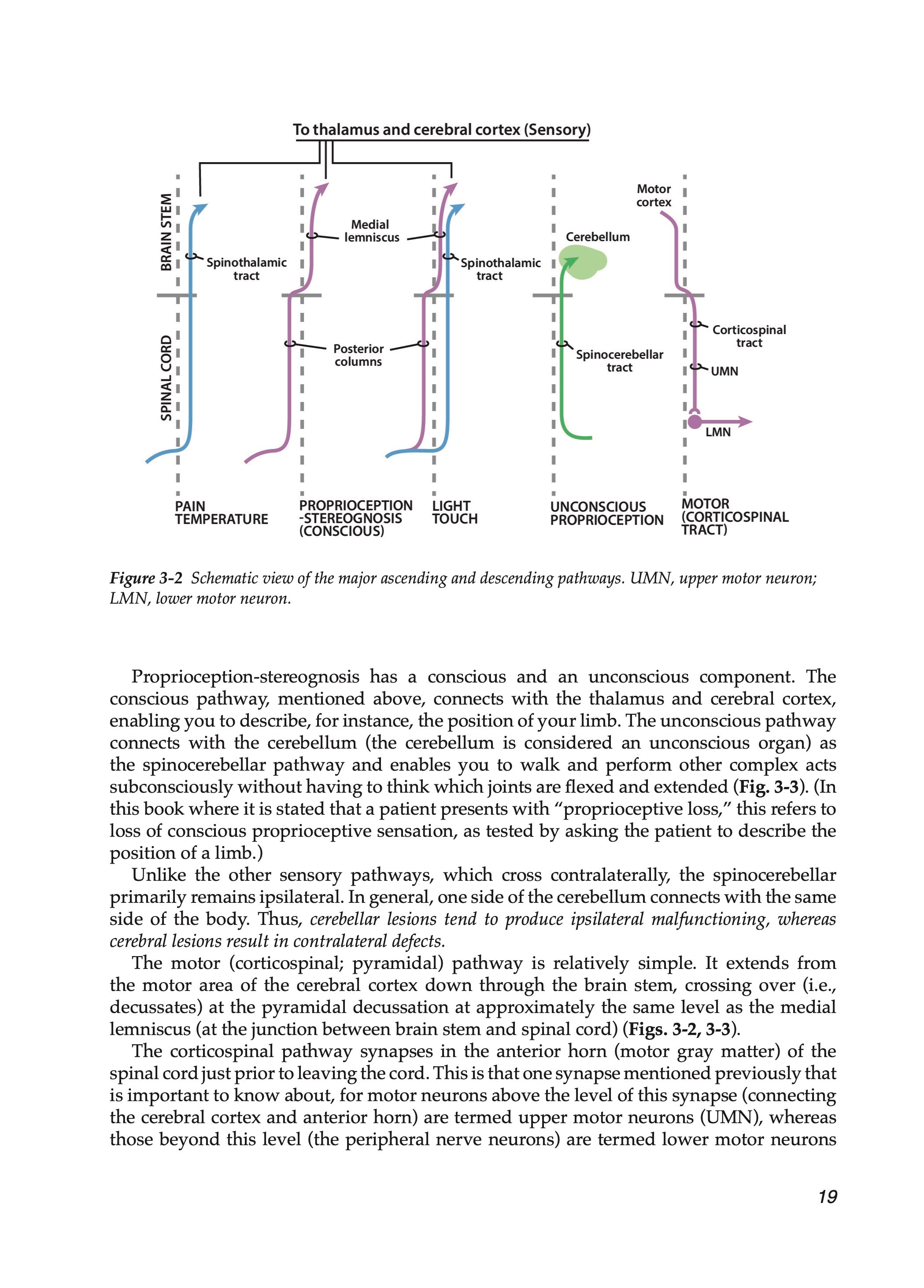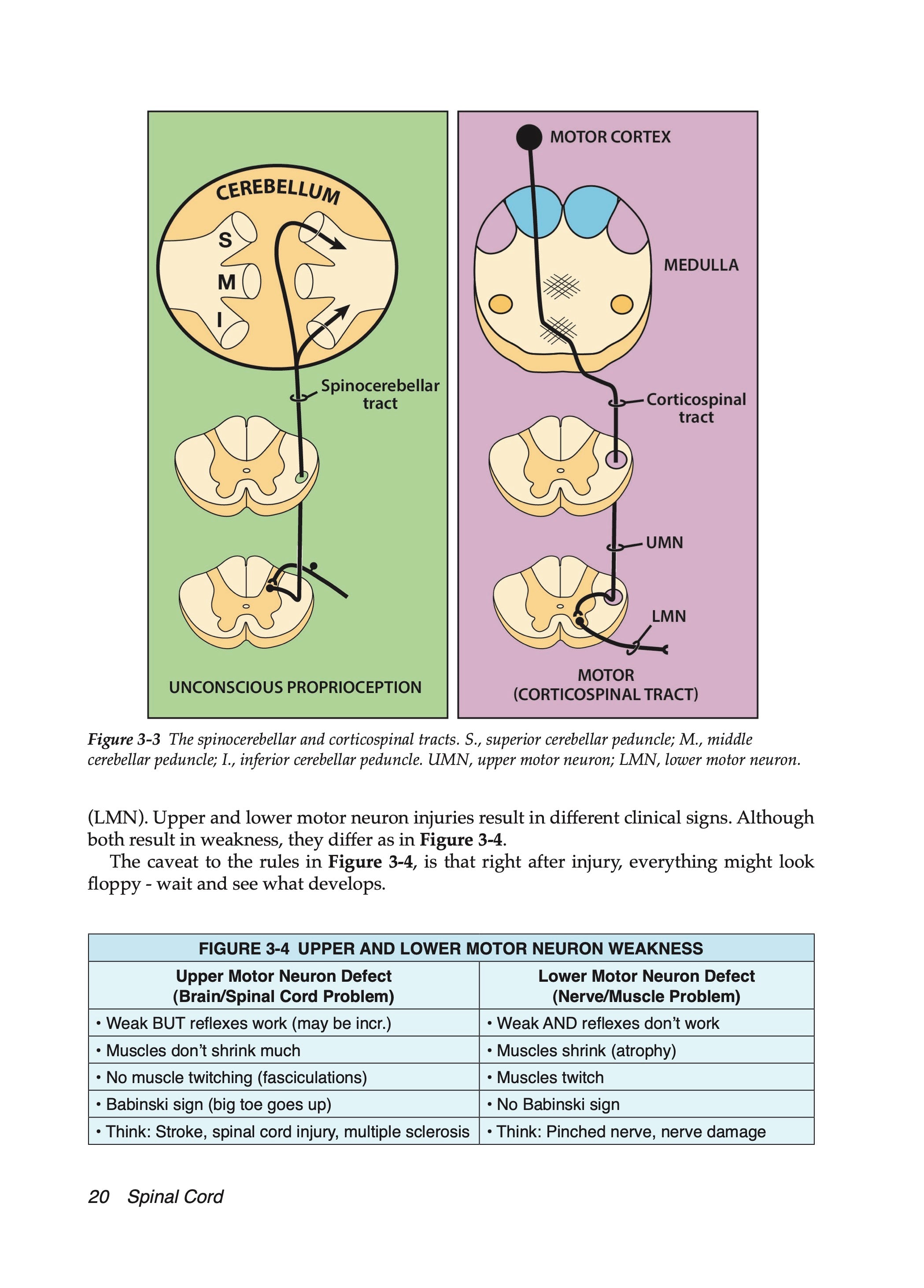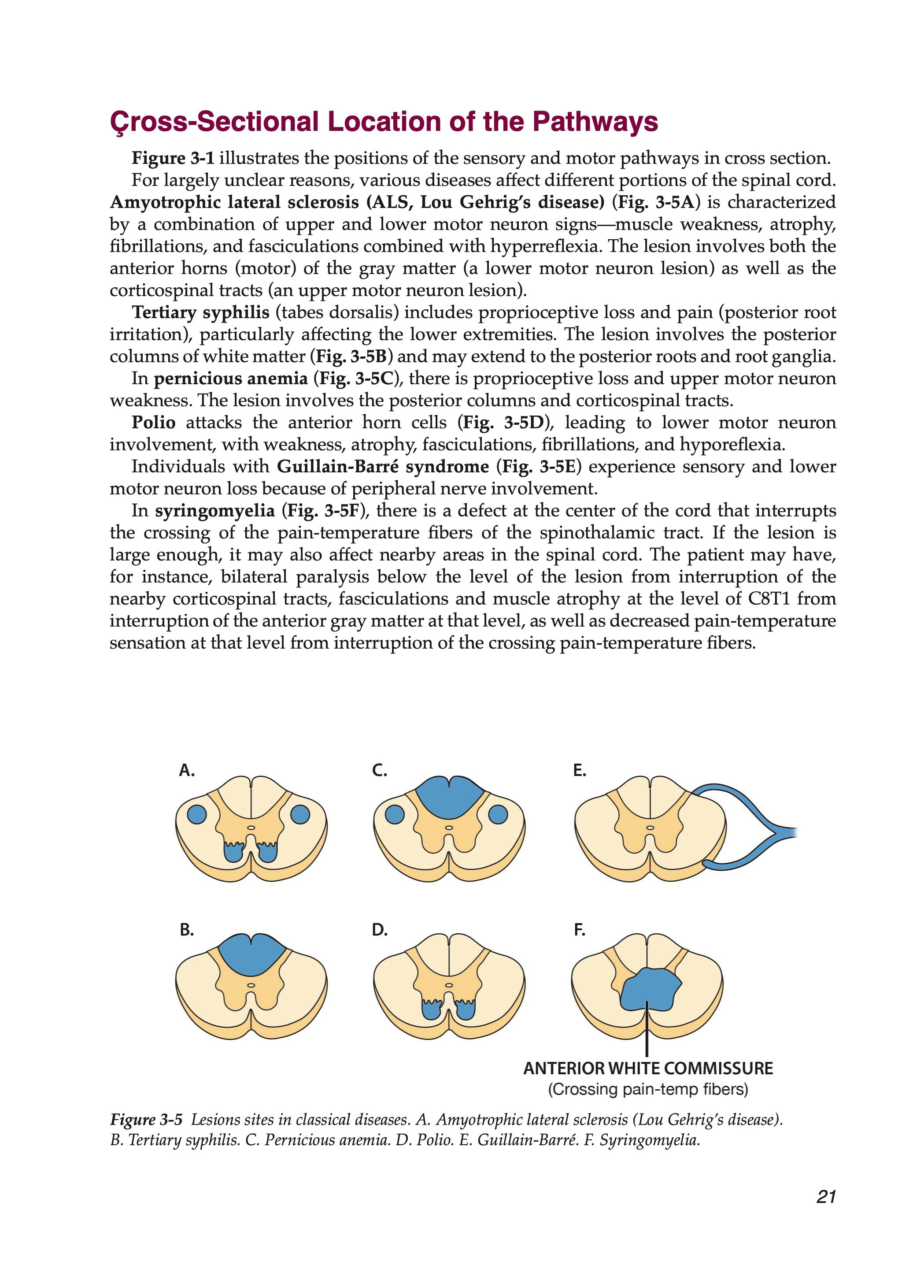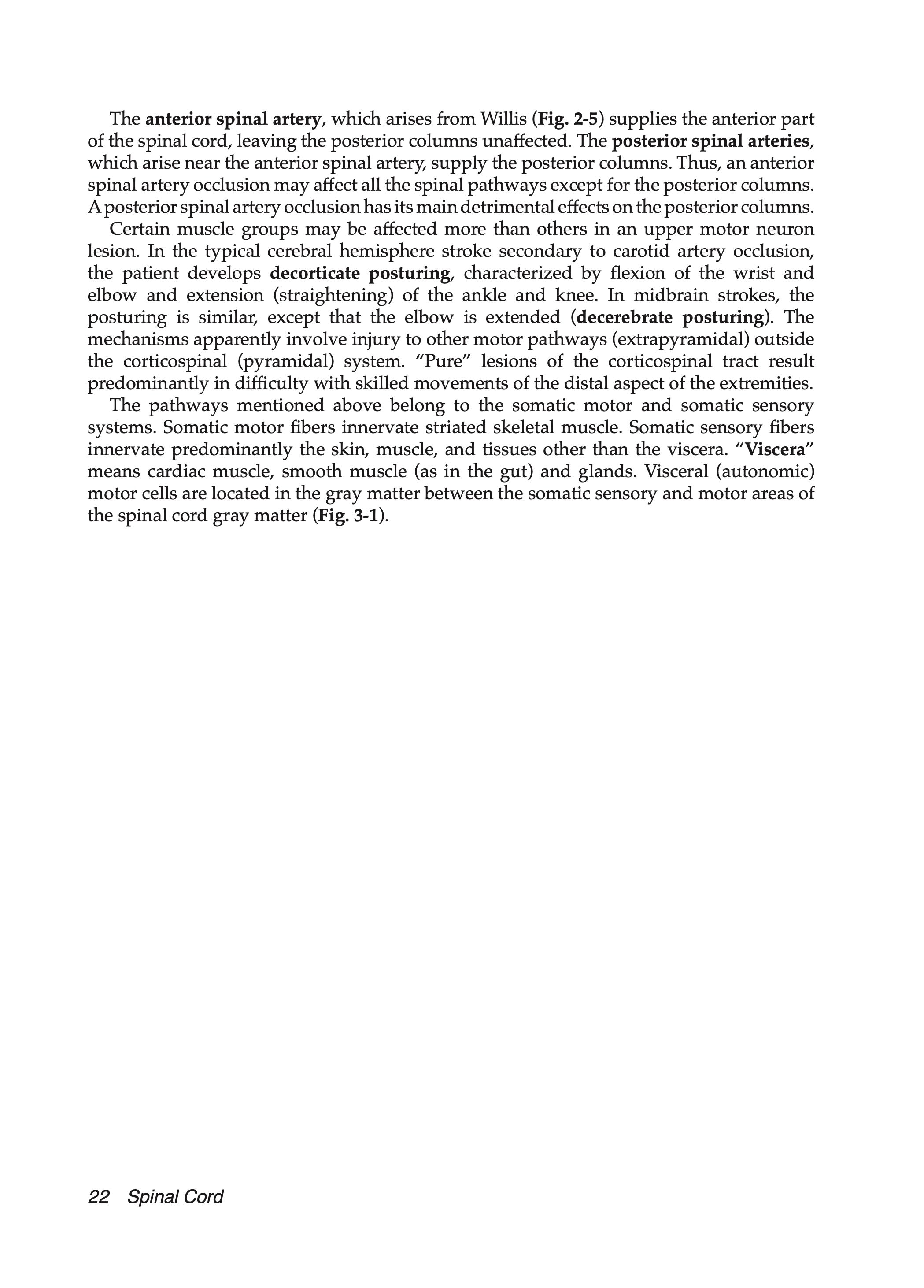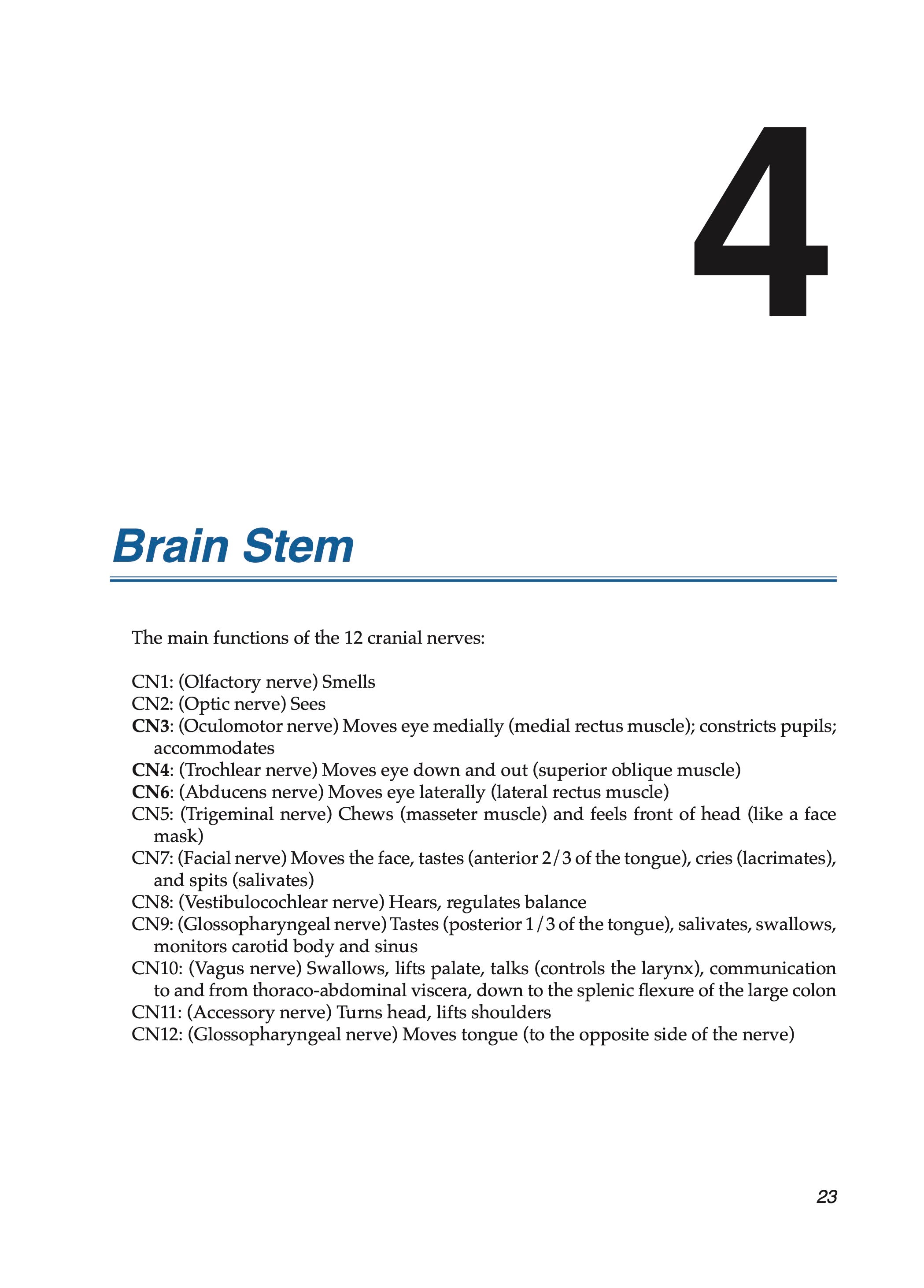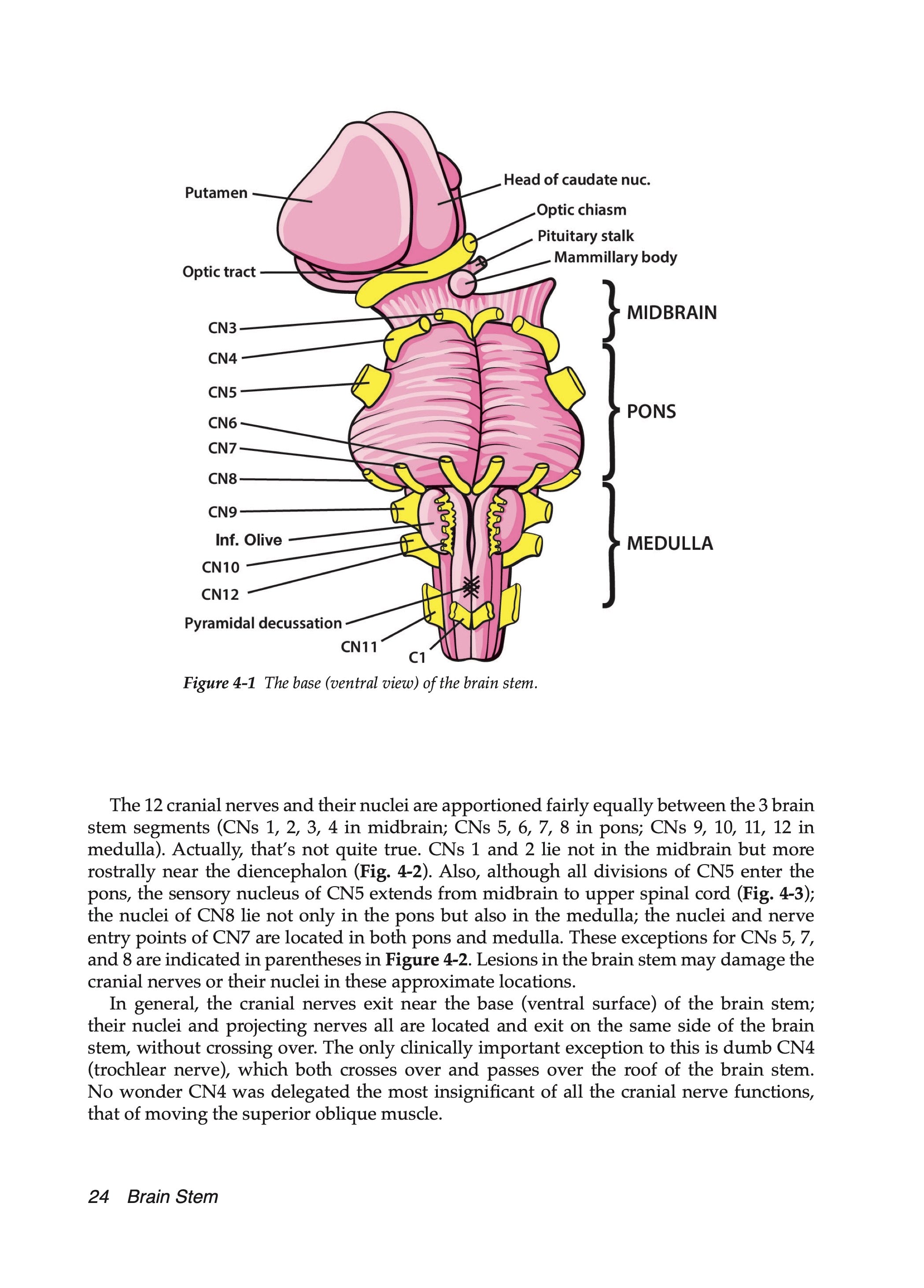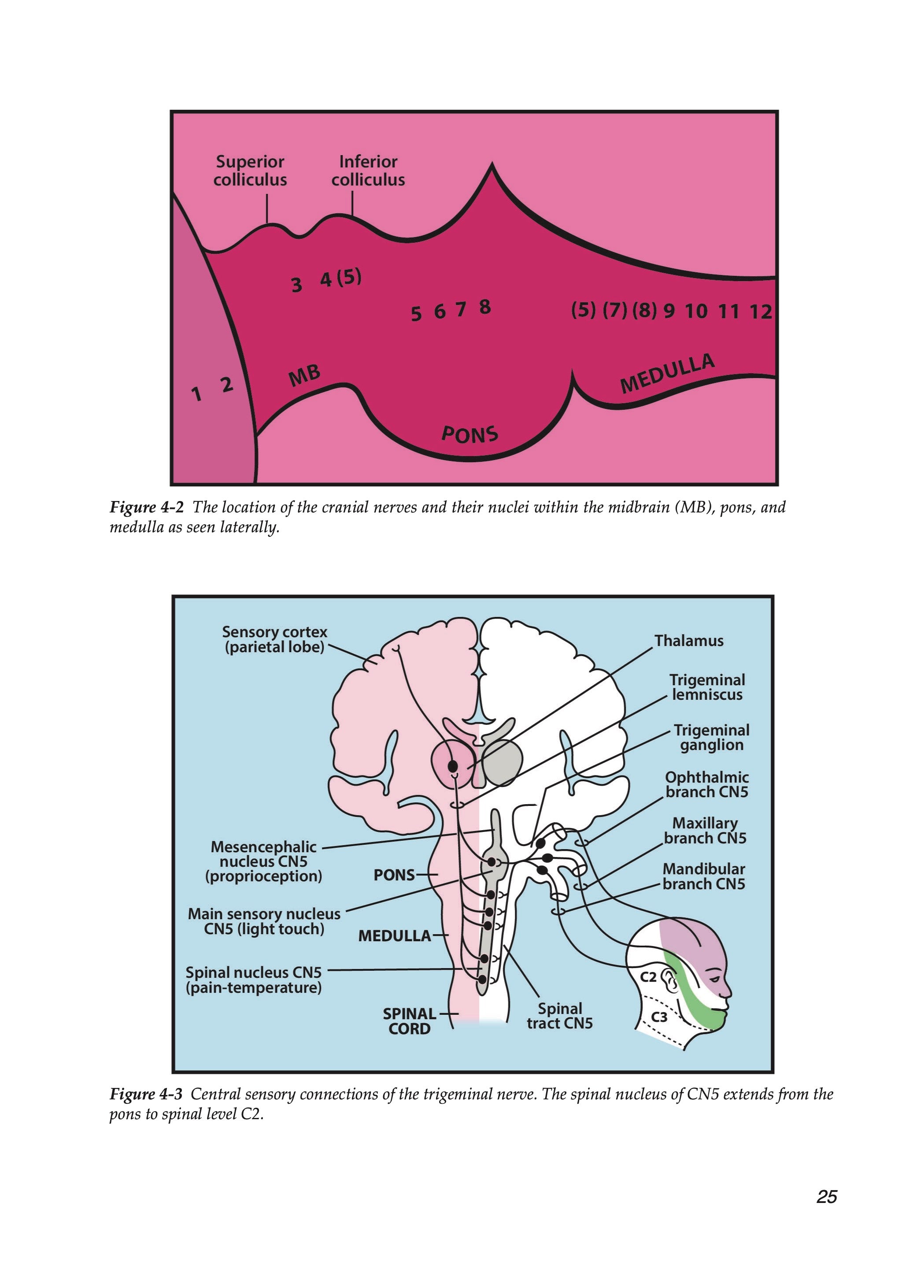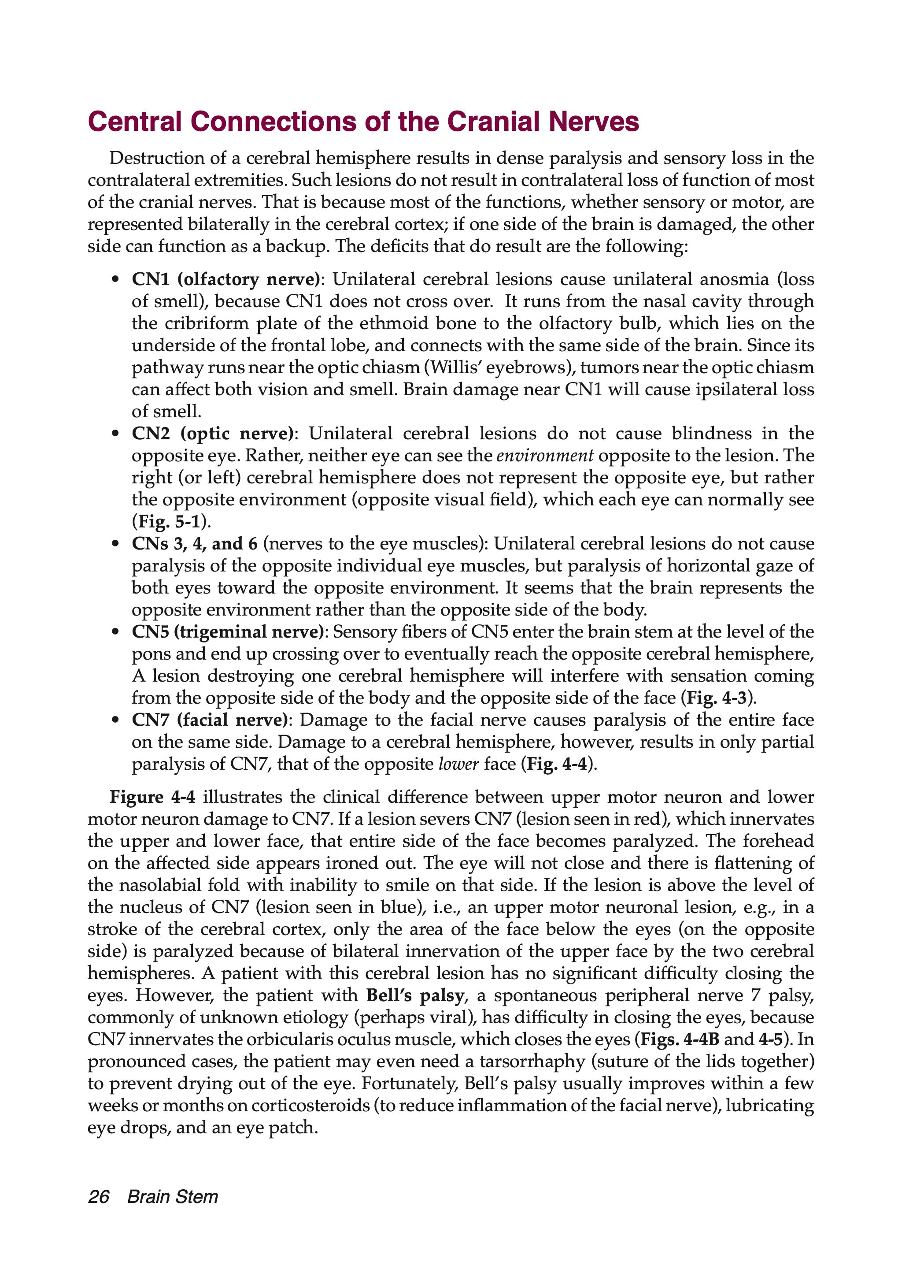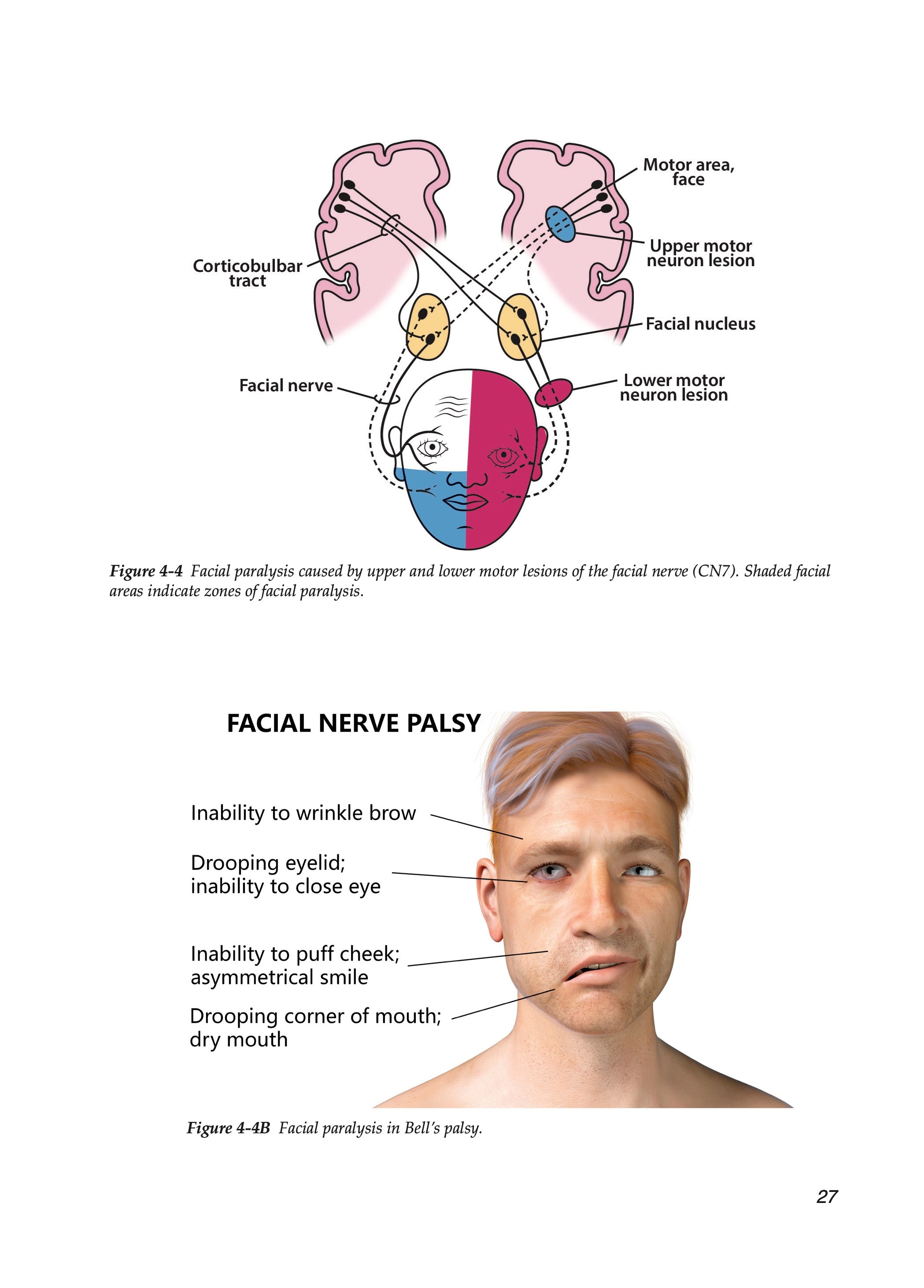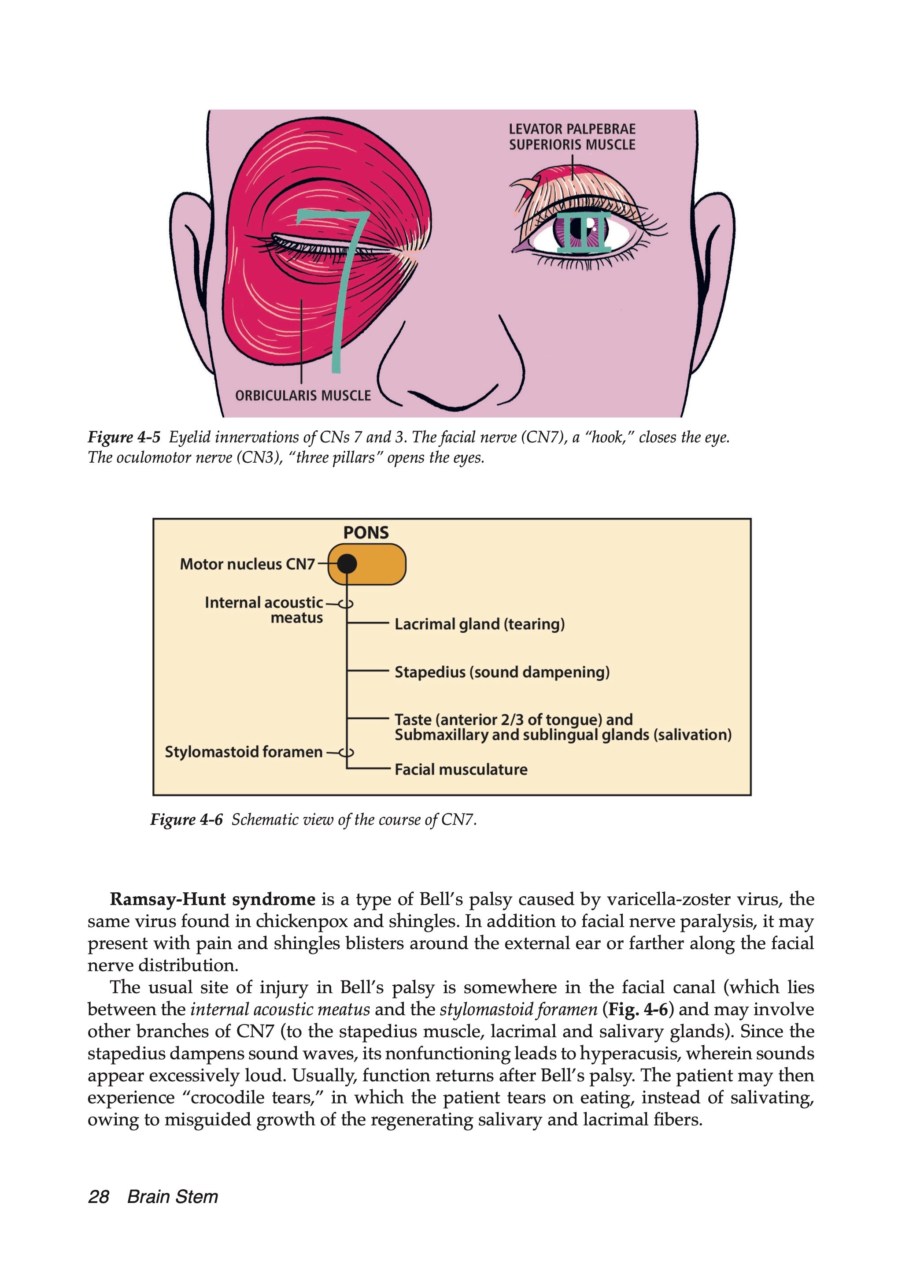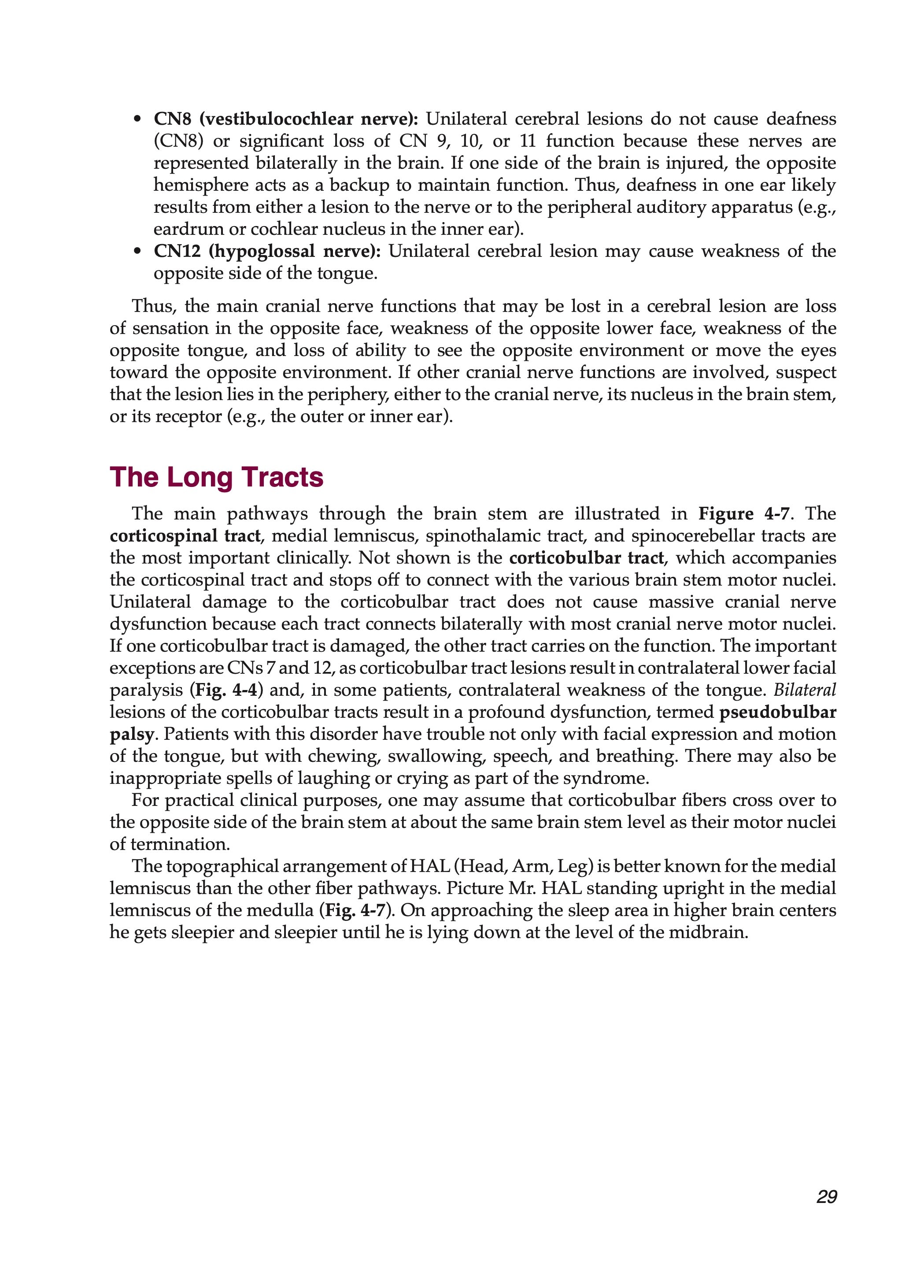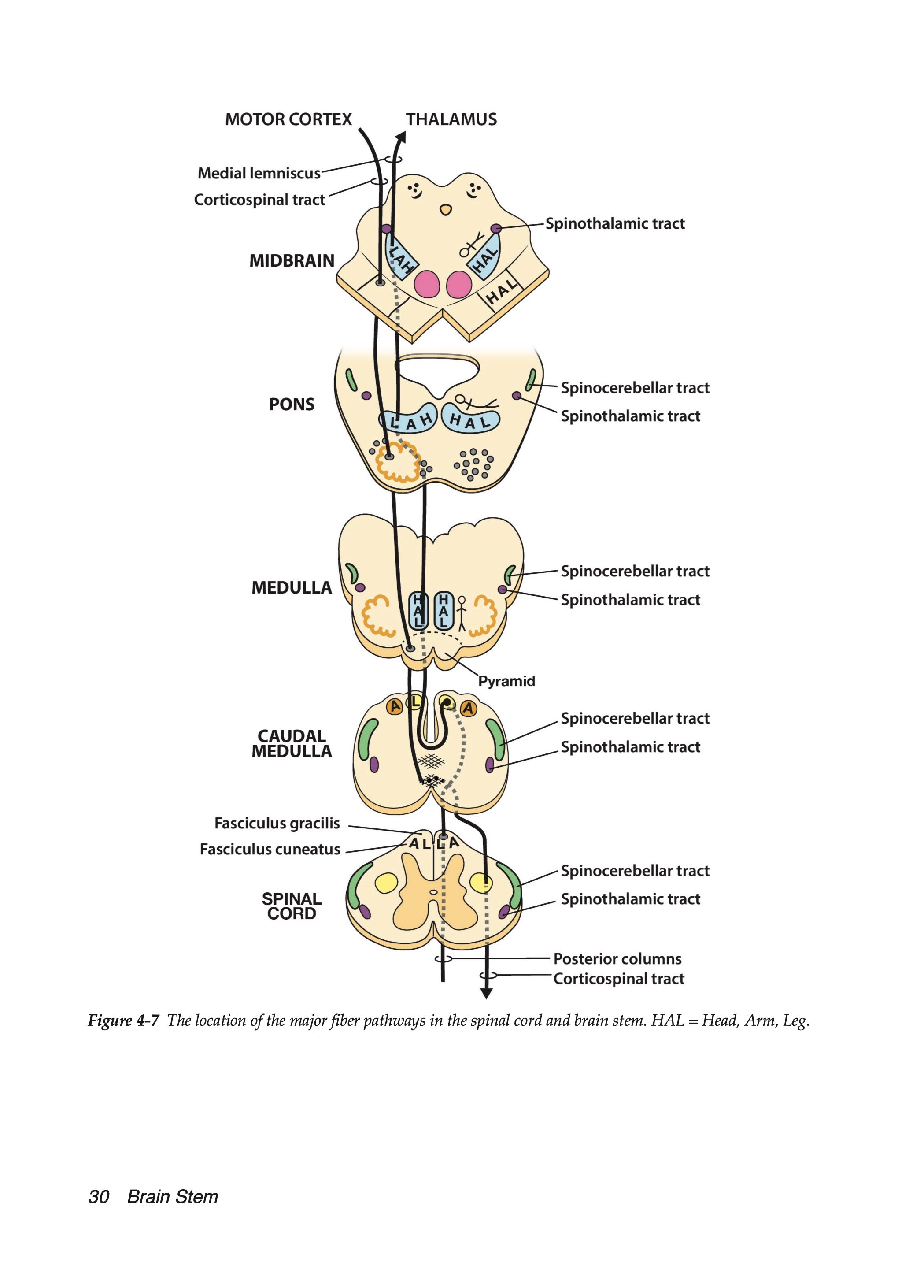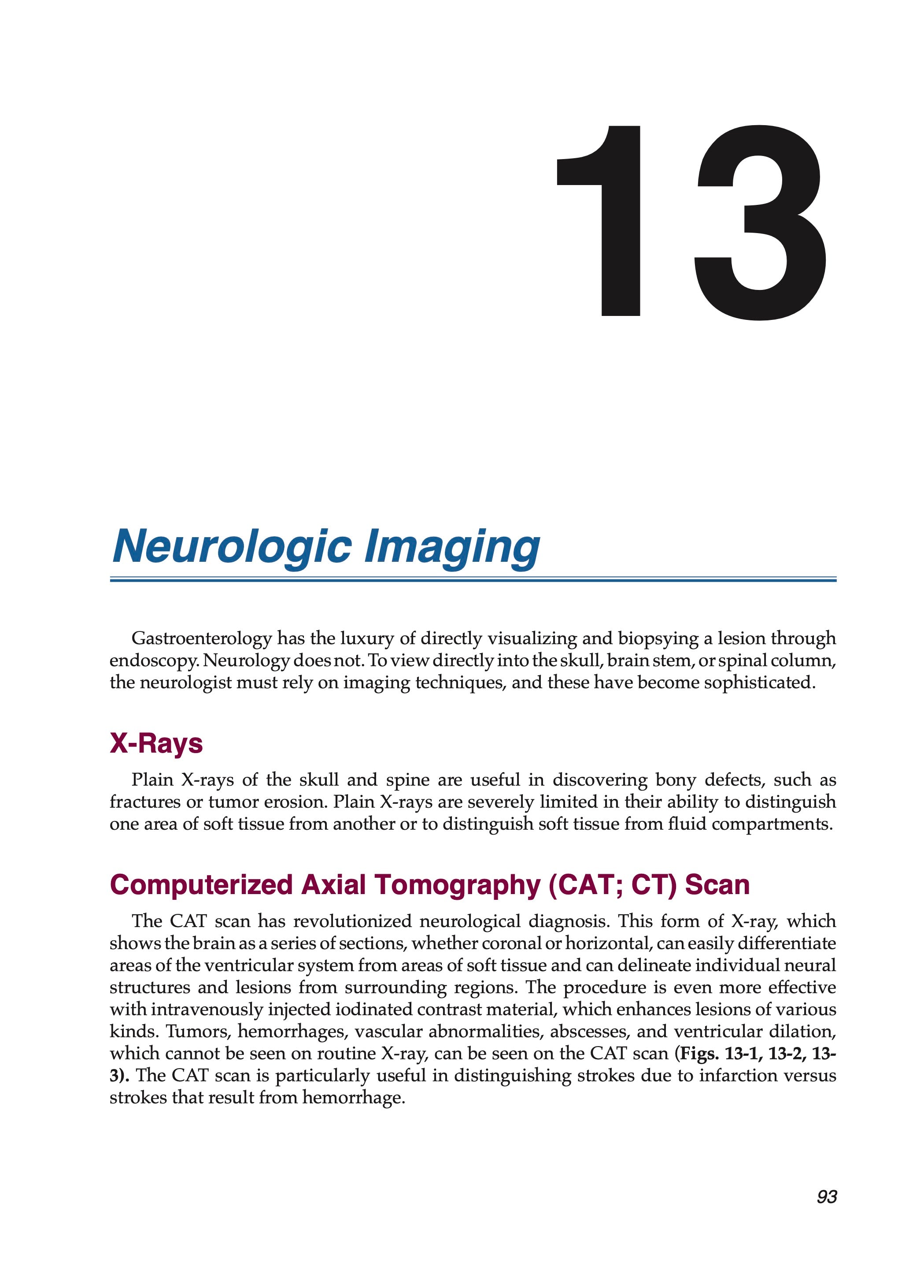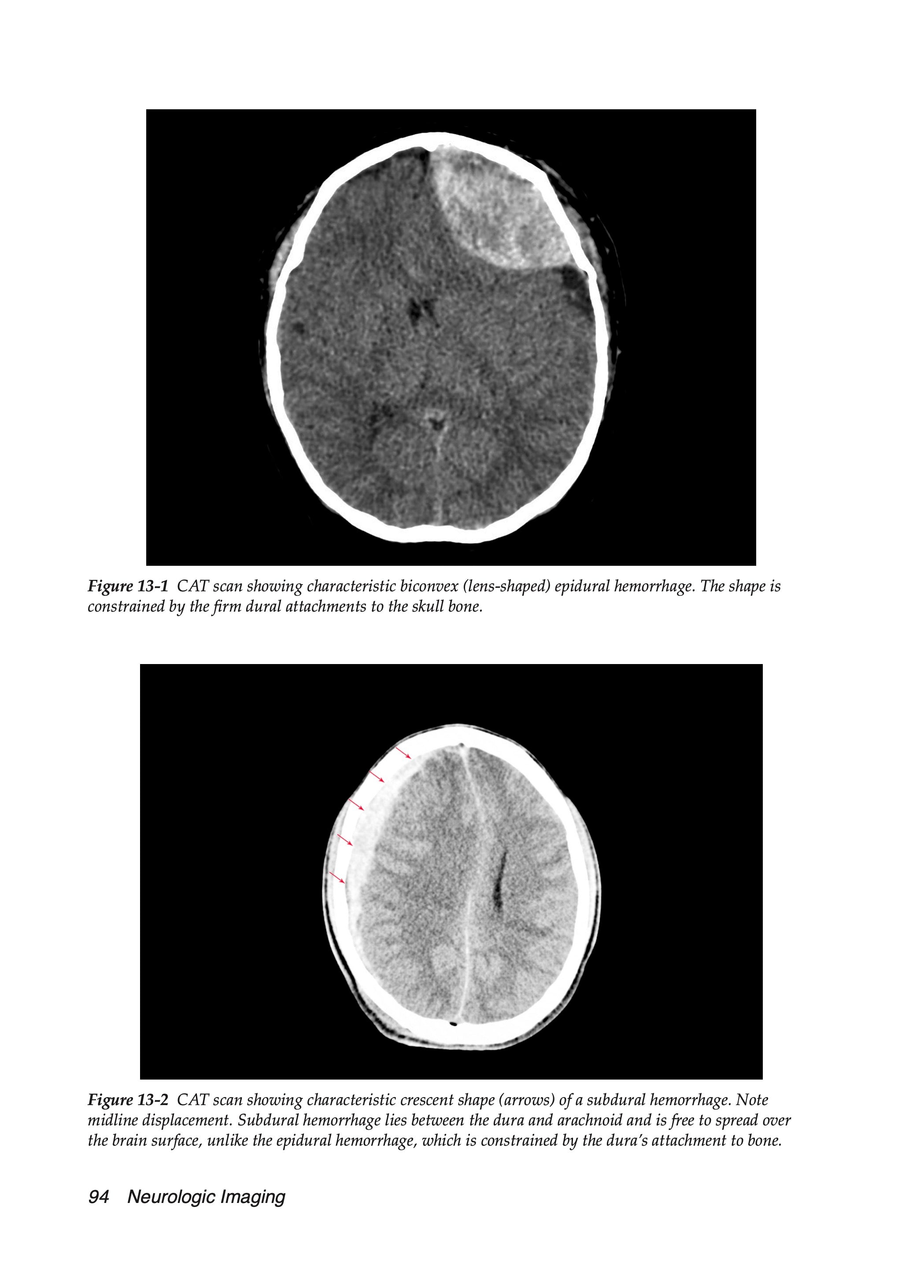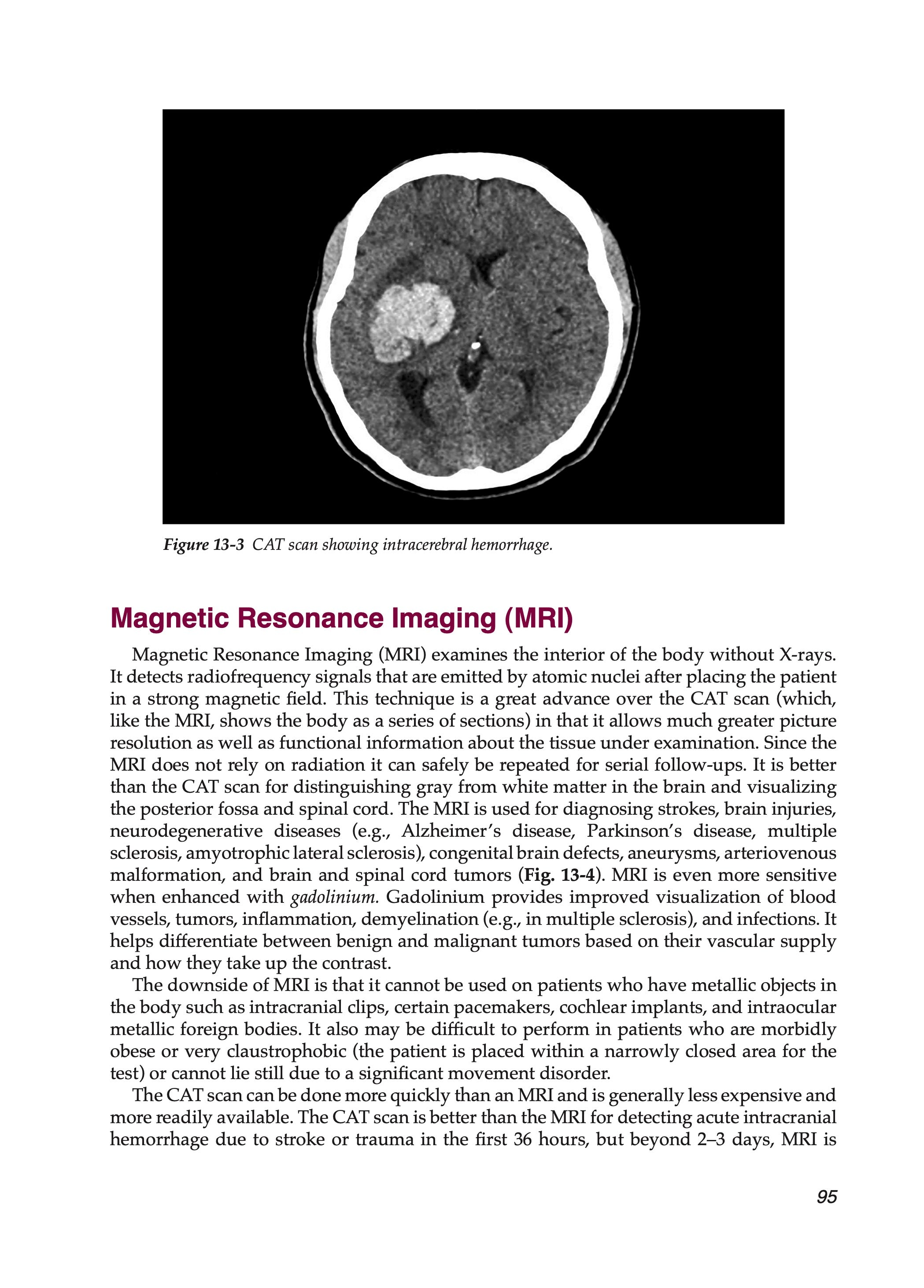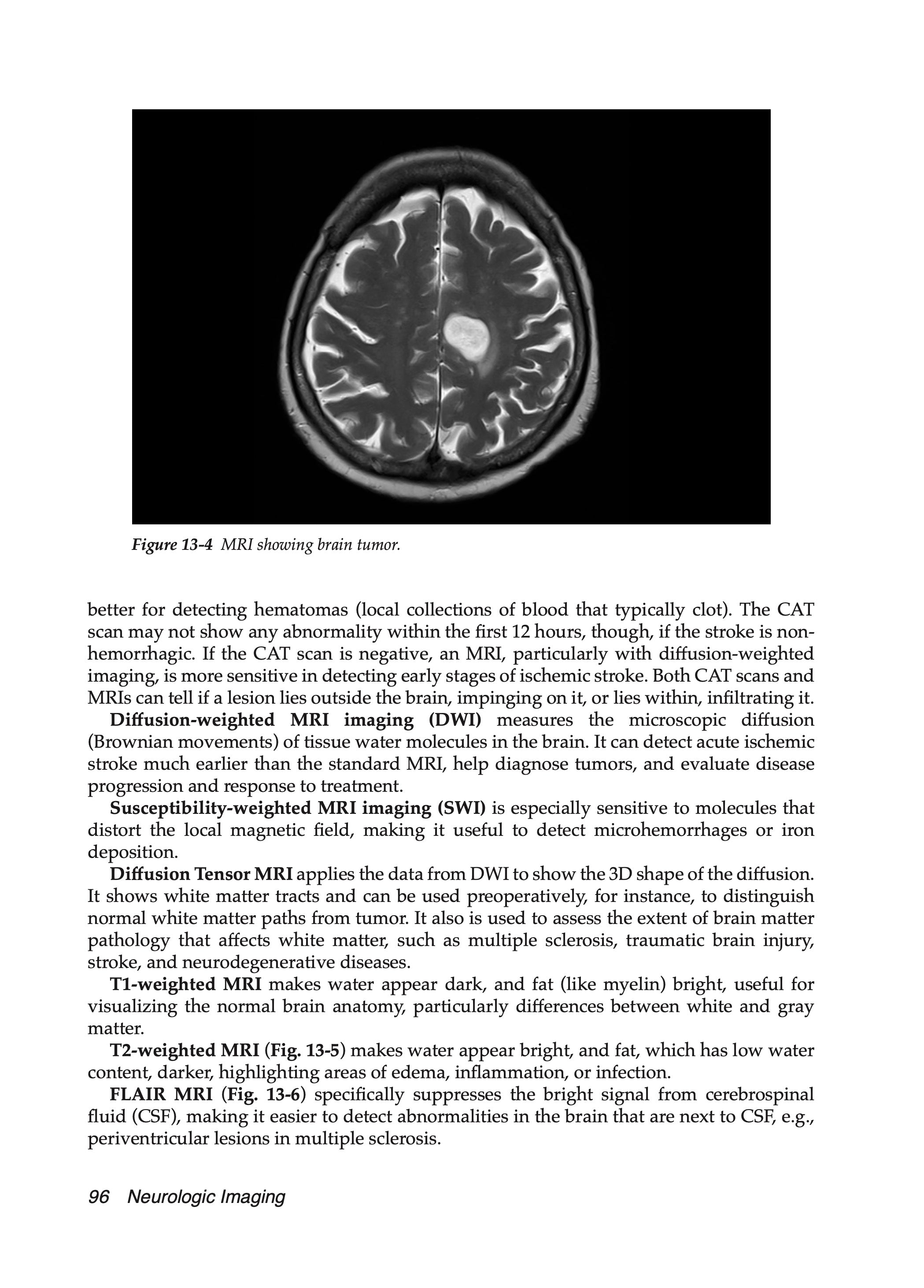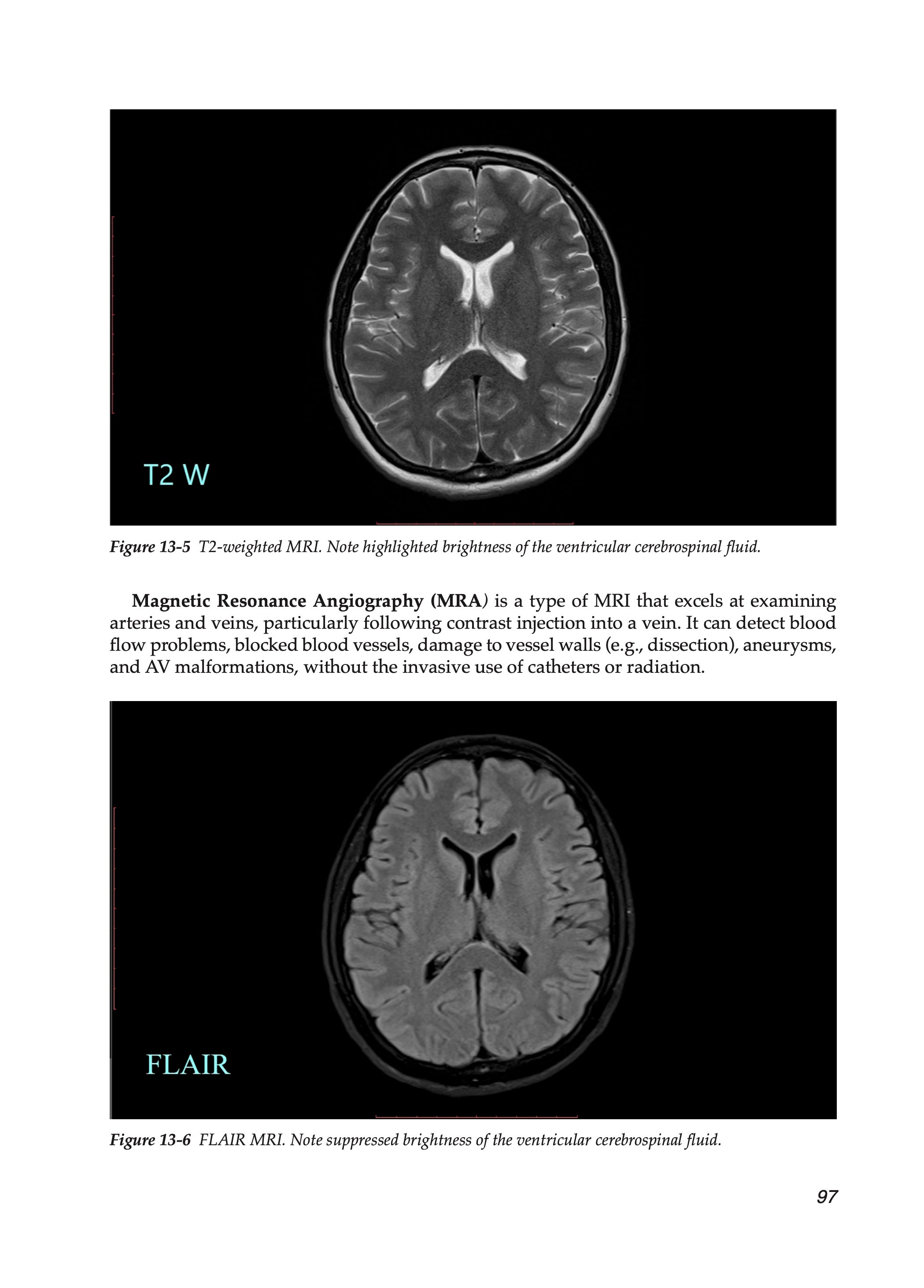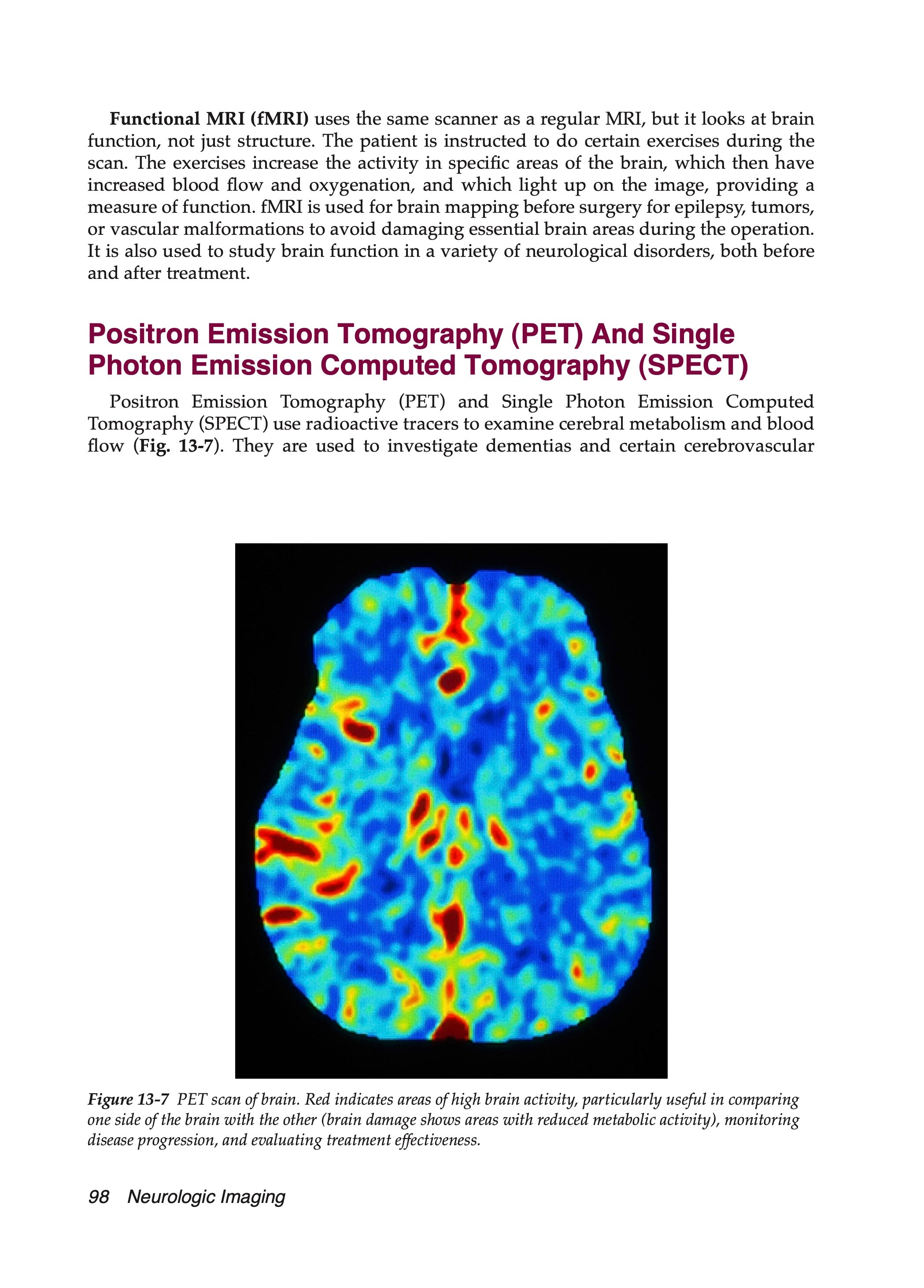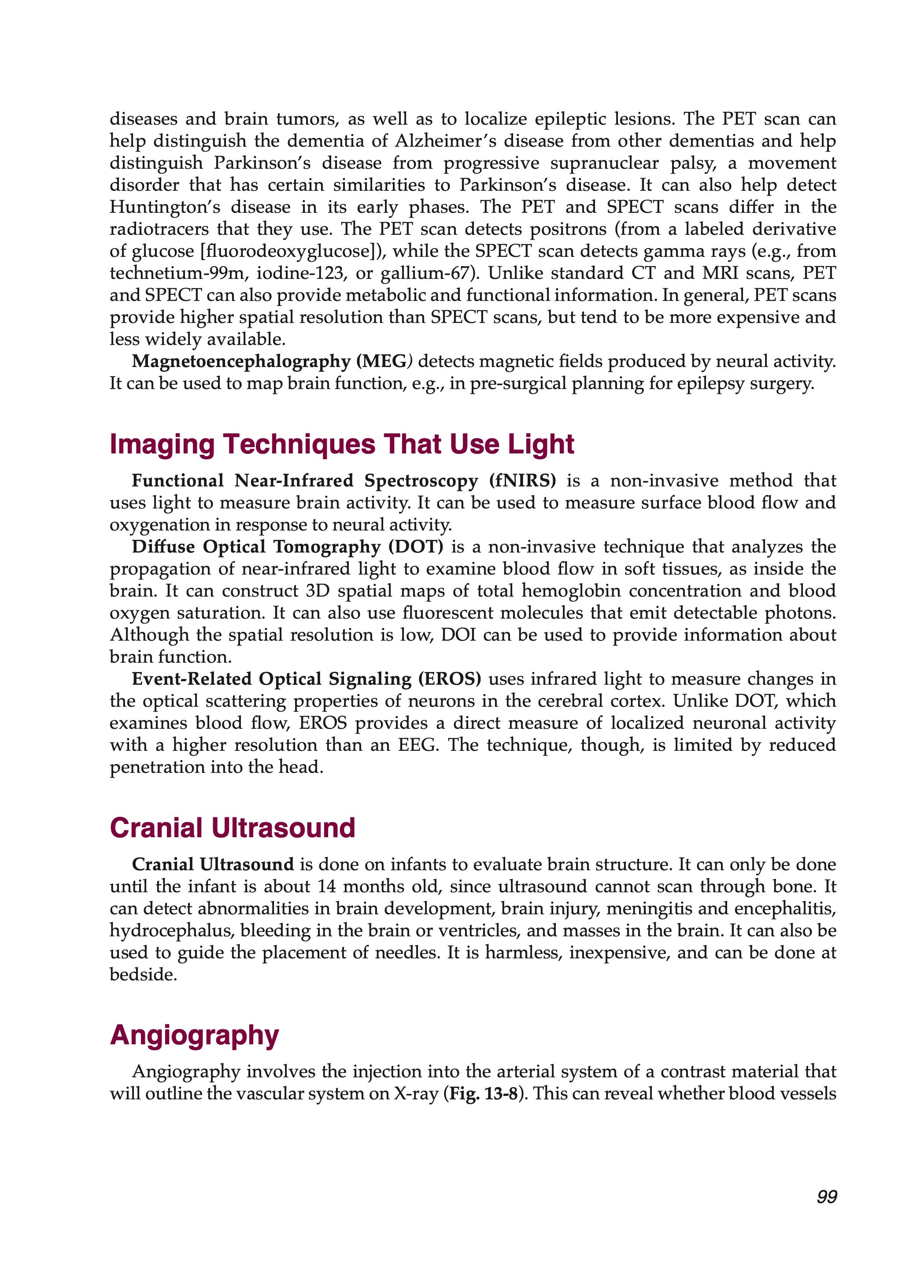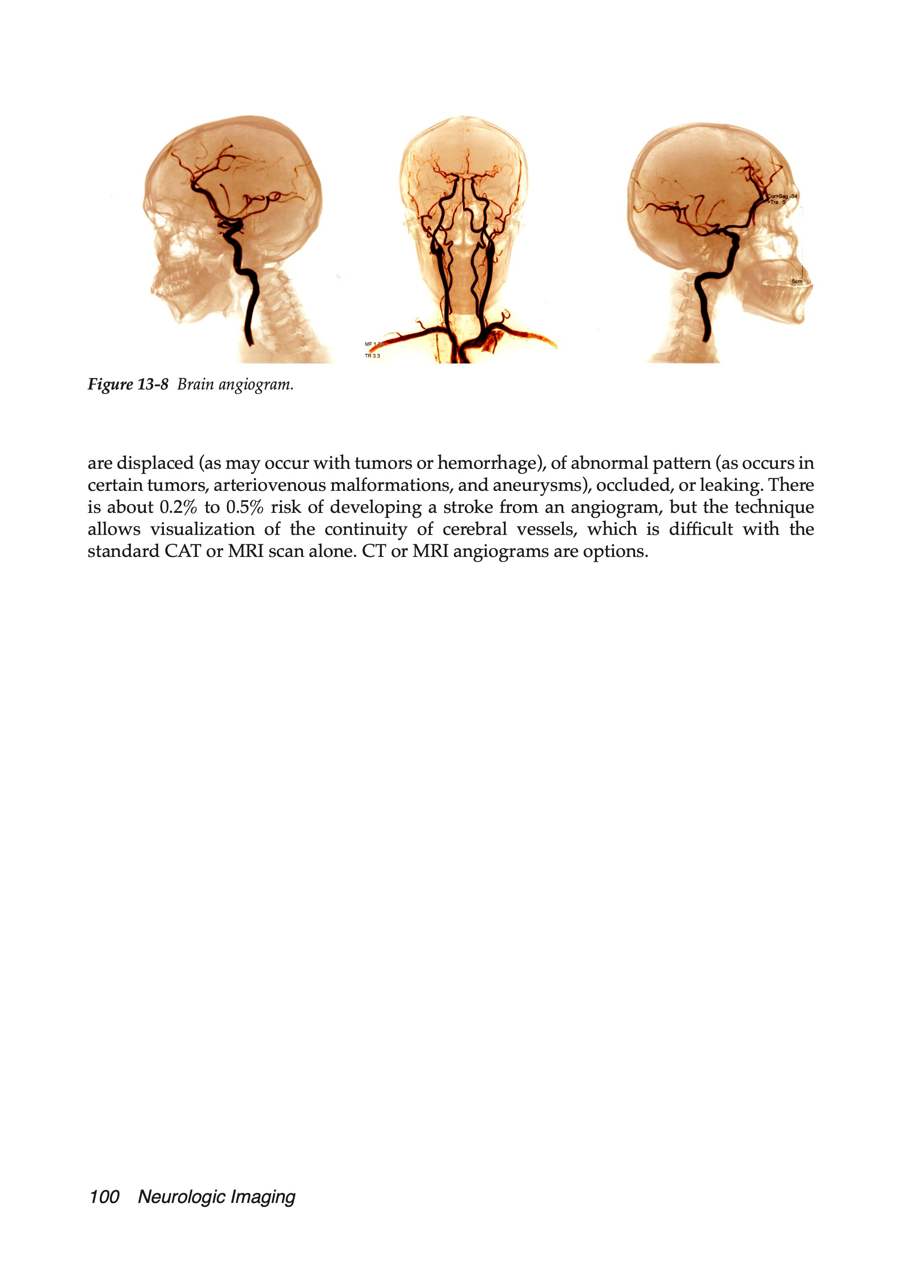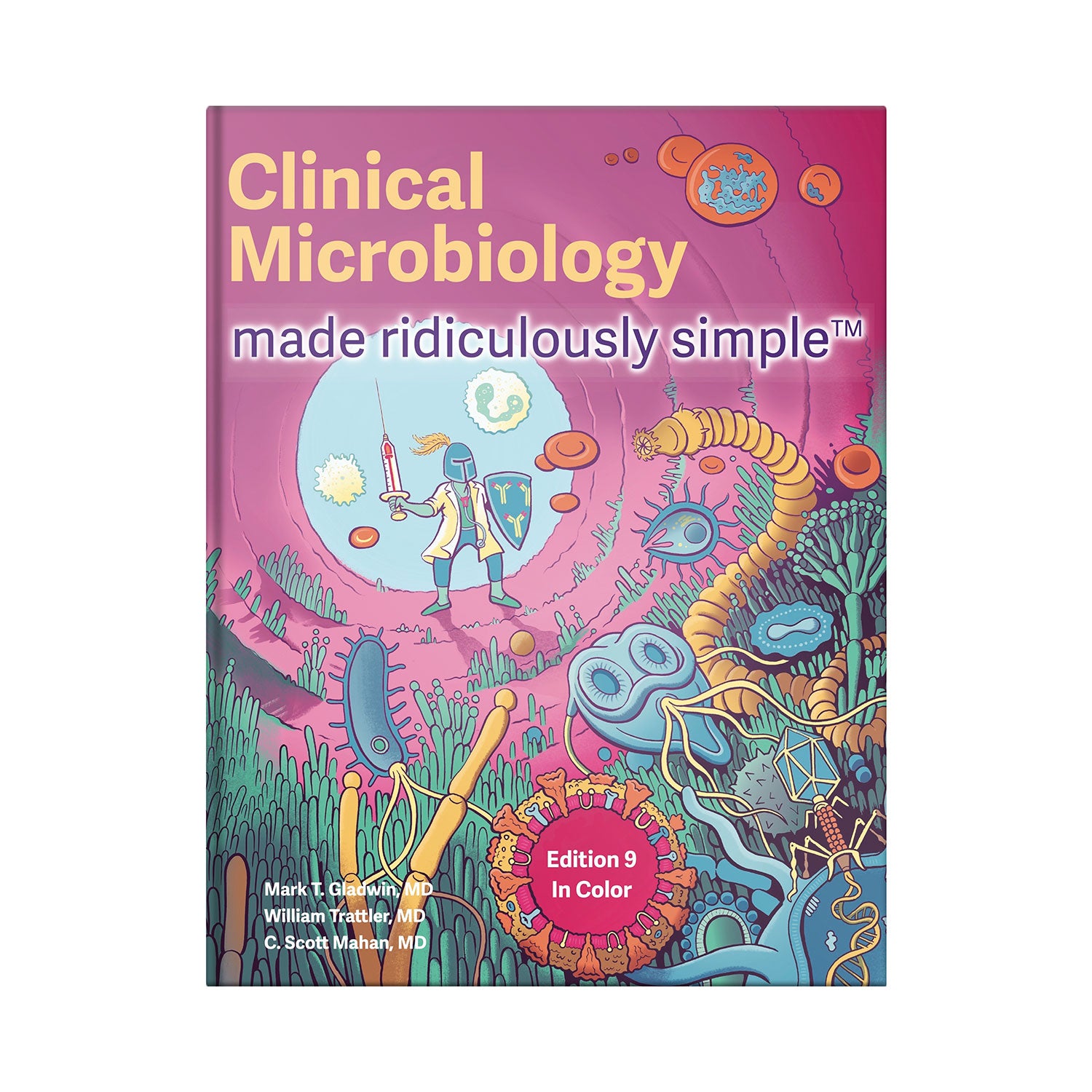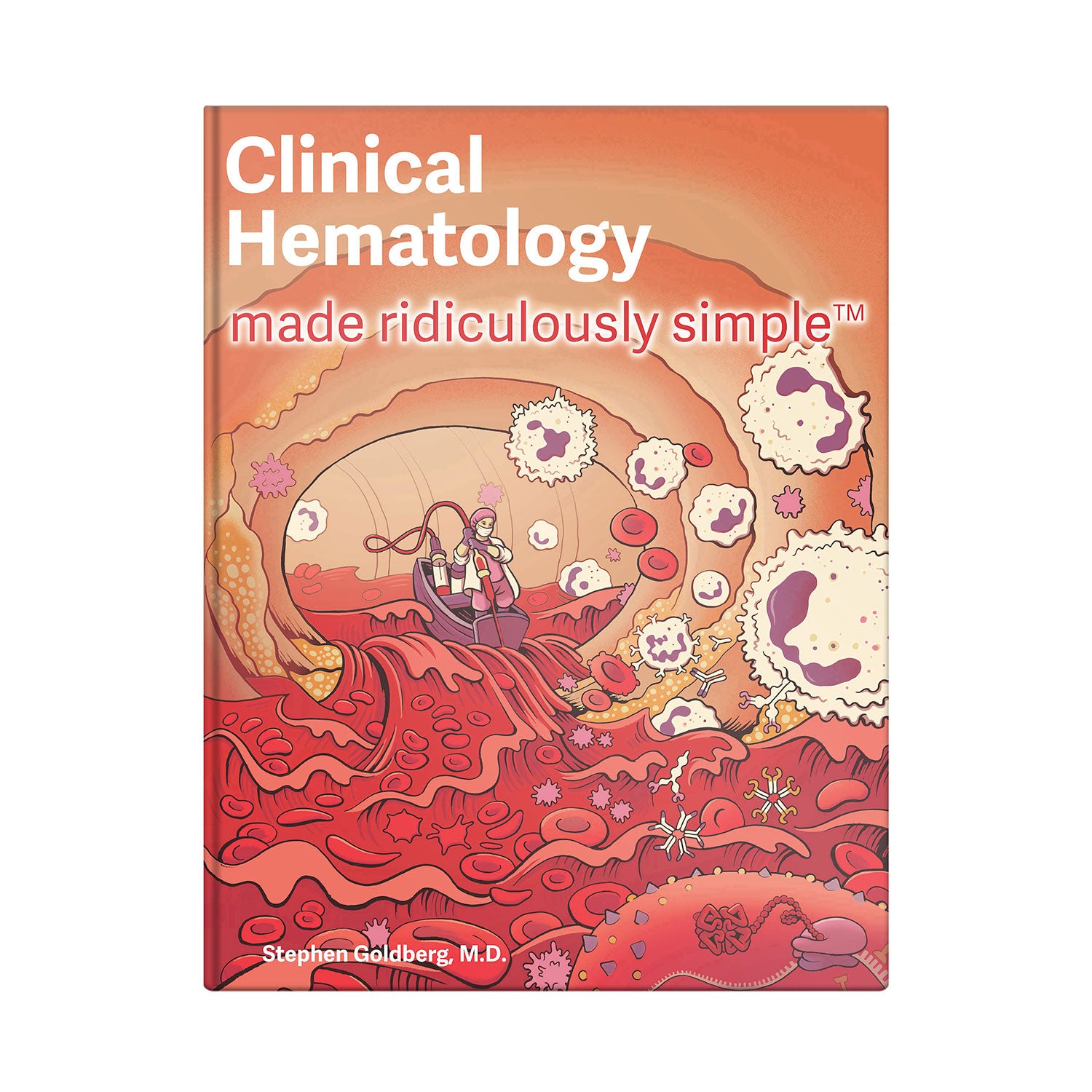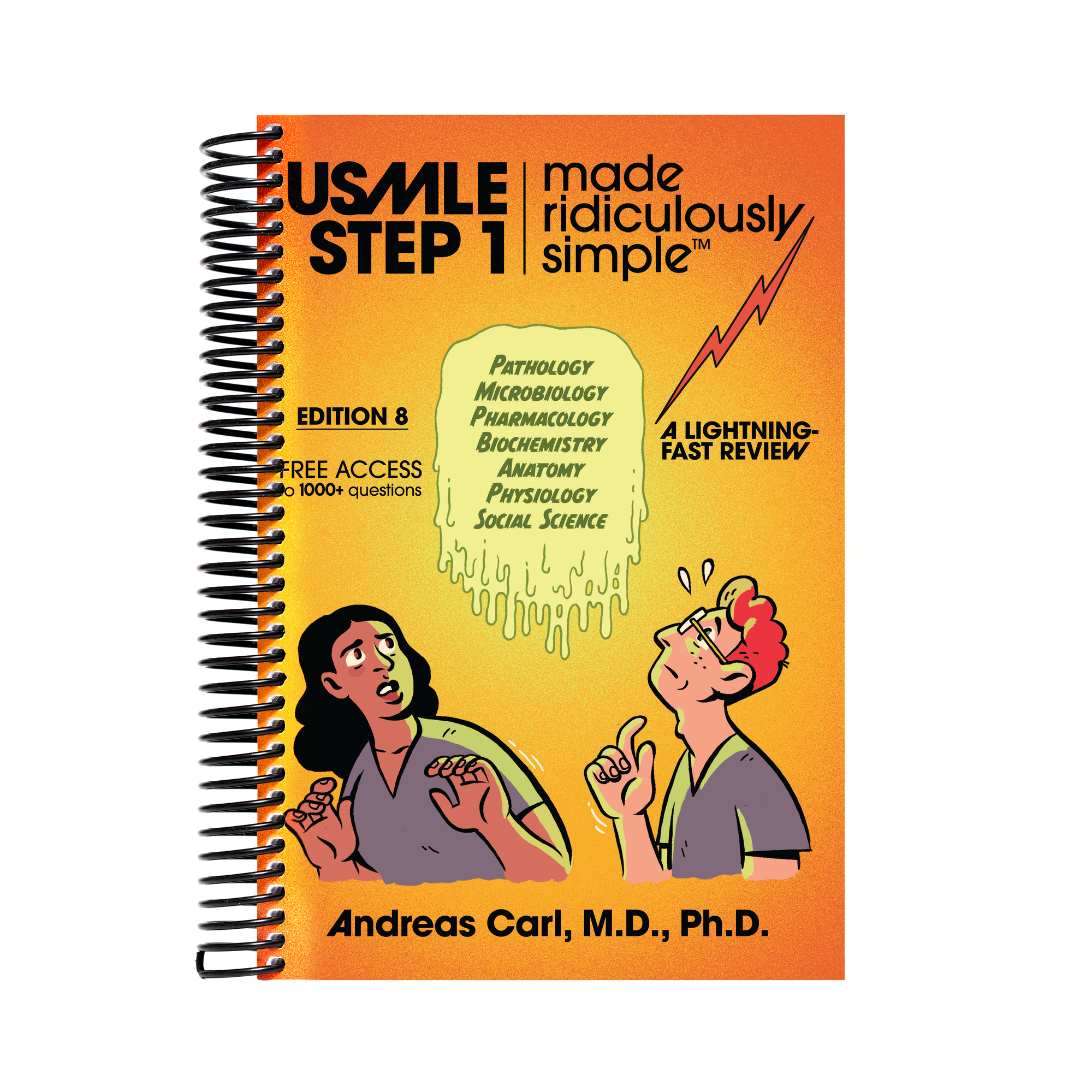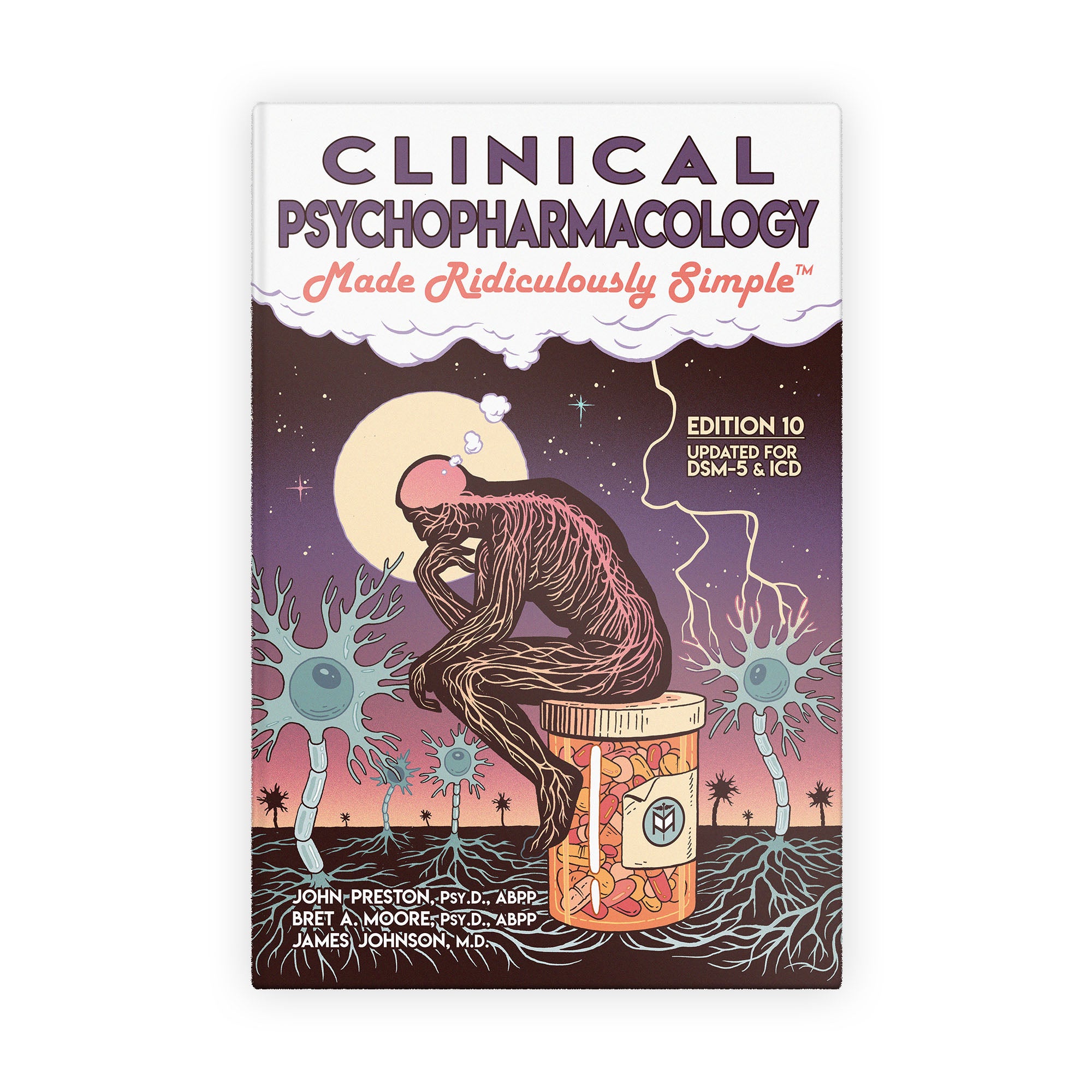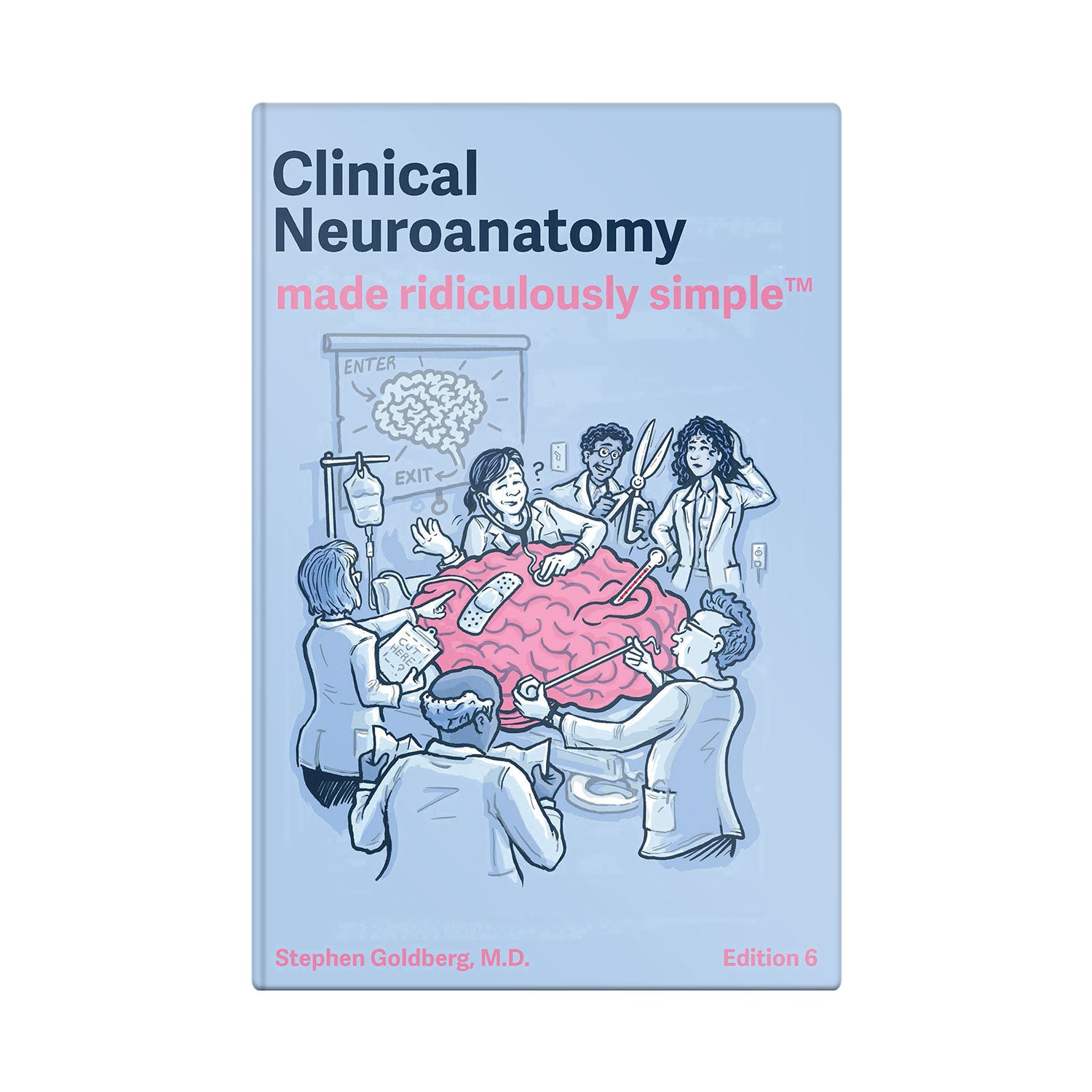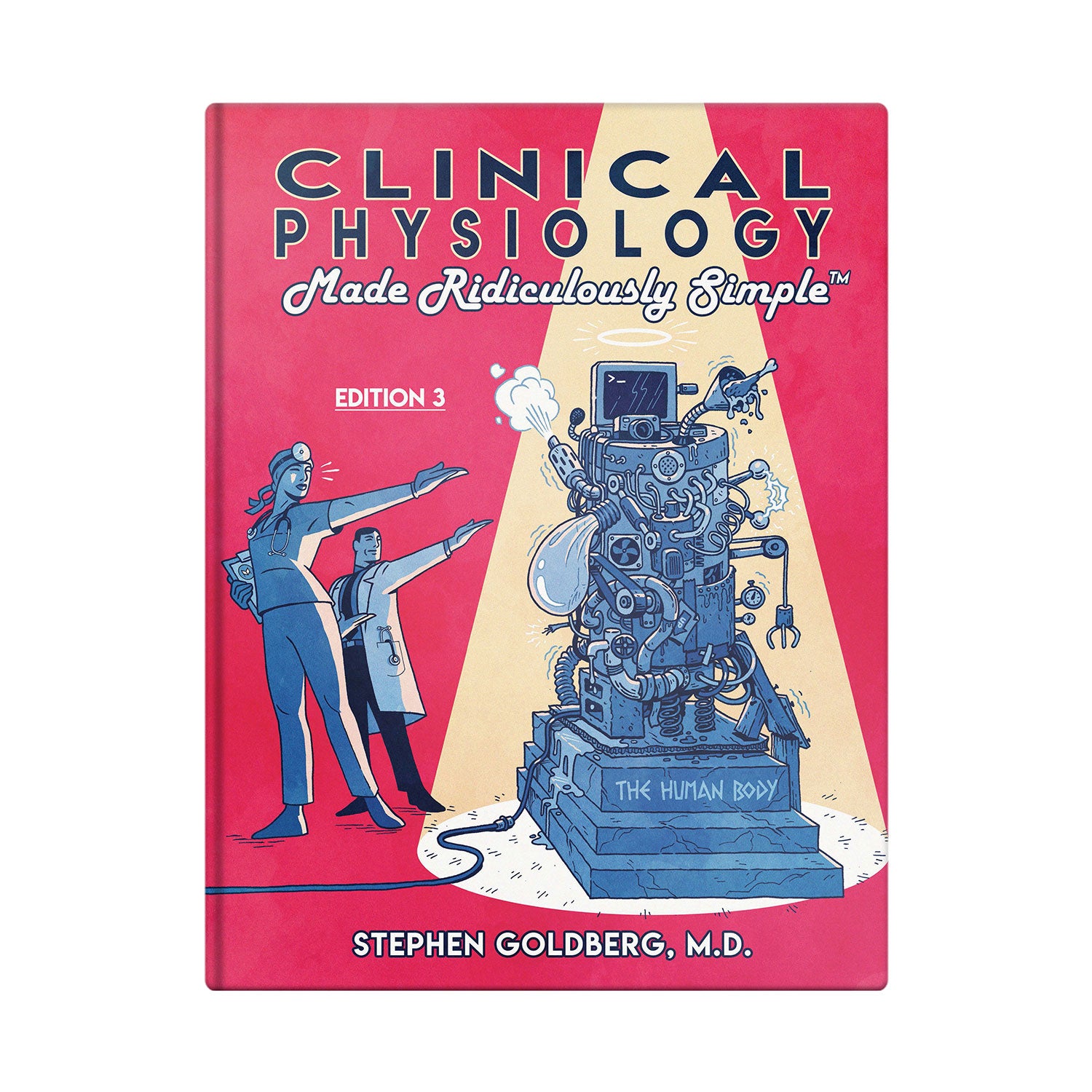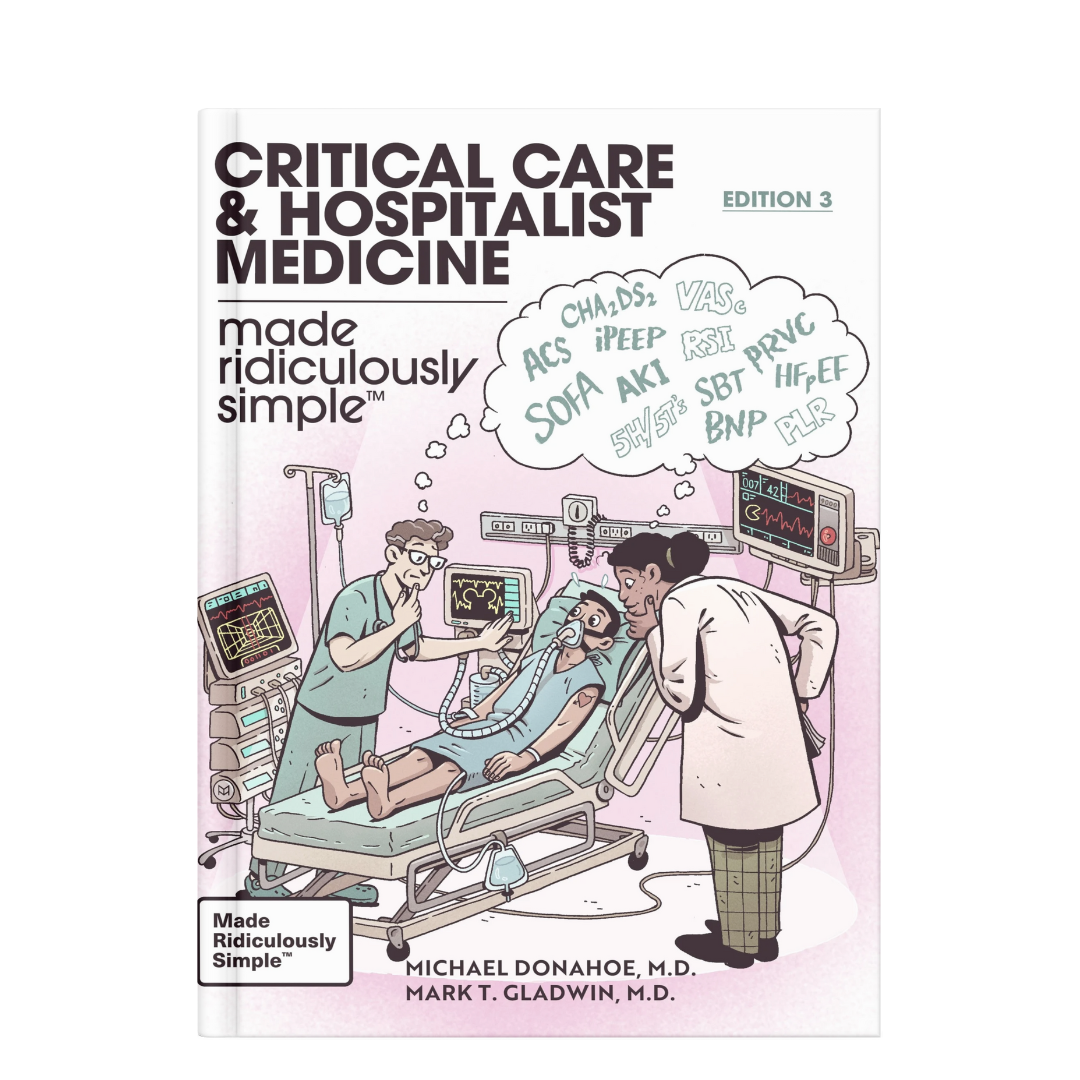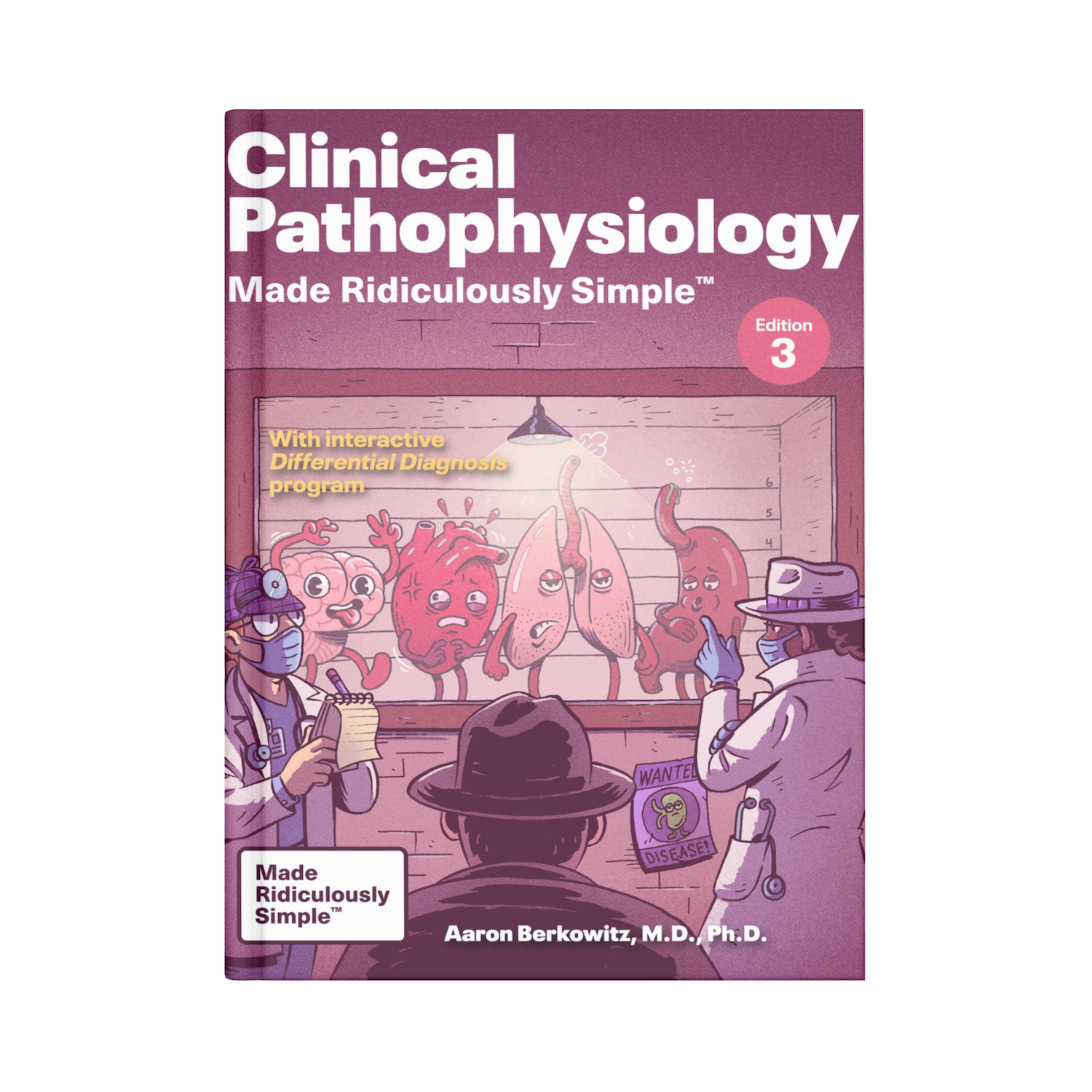
Neurology Made Ridiculously Simple
Also available on
Description
BRAND NEW 2026 TITLE!!!
This book is for medical, nursing, and PA students, primary care physicians, and other health professionals to provide a general overview of neurology.
Neurology can be so complex that it becomes difficult to gain an overall picture of the numerous neurological pathways, intricate exam methods, diseases, and treatments. The book tries to present clinical neurology in a way that enables the reader to quickly grasp the subject by emphasizing its most important features, in a way that promotes understanding rather than rote memorization. The clinical focus is on diseases that are more probable, more serious if missed, and more likely to lead to an effective remedy.
In any given book on neurology, chapters on neurologic diseases can be organized according to 1 of 3 possibilities:
- Nervous system location (e.g., cerebrum, brain stem, spinal cord, peripheral nerves)
- Disease process (e.g., infectious, vascular, autoimmune, degenerative, etc.), or
- The way the patient presents to the physician (e.g., weakness, sensory loss, pain, seizure, dizziness, balance problems, memory loss, etc.)
We have chosen the latter symptomatic approach, since it is how the patient presents and the immediate practical route to the diagnosis and treatment.
Author(s)
Stephen Goldberg, M.D.
Stephen Goldberg, M.D., a graduate of the Albert Einstein College of Medicine, is a researcher, physician, teacher, computer programmer, writer, musician/composer, and past President of the Medmaster Publishing Company for 40 years. Dr. Goldberg has published numerous medical and scientific papers through research at the Albert Einstein College of Medicine, National Institutes of Health, New York Medical College and the University of Miami School of Medicine. He has authored 20 books in a diversity of medical areas, including textbooks of Anatomy, Physiology, Biochemistry, Genetics, Biostatistics and Epidemiology, Neurology, Consciousness, Ophthalmology, Hematology, and Computer Programming, as well as many interactive computer programs on various medical topics, including Atlas of Microbiology and Atlas of Human Diseases. He is Professor Emeritus at the University of Miami Miller School of Medicine, where he taught medical students for 25 years. His reputation is that of an educator who can simplify complex topics. He received the George Paff Most Outstanding Professor Teaching Award11 times at the U of M and was invited in 2004 to be the keynote speaker at the medical school graduation commencement at the Washington University School of Medicine in St. Louis for his work in medical education. He is currently Editor-in-Chief of the Medmaster Publishing Company.
Damon R. Salzman, M.D.
Dr. Damon Salzman is a board-certified neurologist and sleep medicine specialist with over two decades of clinical and academic experience. He earned his medical degree from Northwestern University Medical School and completed his neurology residency and sleep disorders fellowship at Harvard Medical School/Beth Israel Deaconess Medical Center.
Dr. Salzman previously served as Director of the Sleep-Wake Disorders Center at New York-Presbyterian Hospital and Weill Cornell Medical College, and later as Director of the Florida Lou Ruvo Center of Brain Health at Cleveland Clinic Florida, where he directed the behavioral neurology and memory disorders program. He also served as a neurologist for the NFL's Chronic Traumatic Encephalopathy program. Currently, he practices at Broward Health, where he serves as core teaching faculty for the neurology residency program.
His academic background includes a Master of Studies from Oxford University's Centre for Postgraduate Hebrew Studies, reflecting his scholarly interests beyond medicine. Dr. Salzman has authored numerous publications on neurological disorders and has been recognized as one of the Top Doctors by Castle Connolly.
Dr. Salzman lives in South Florida with his wife and three children.
Details
Pages: 236
Publication: Edition 1 (December 20, 2025)
Language: English
ISBN: 9781962445108 eISBN: 9781962445115
Table of contents
Part I. Neuroanatomy Review
Chapter 1 General Organization
Chapter 2 Blood Supply, Meninges, and Spinal Fluid
The Veins
The Cerebrospinal Fluid
Chapter 3 Spinal Cord
The Sites of Crossing Over
Çross-Sectional Location of the Pathways
Chapter 4 Brain Stem
Central Connections of the Cranial Nerves
The Long Tracts
Chapter 5 Visual System
Optic Reflexes: Pupillary Constriction to Light
Accommodation
Conjugate Gaze
Nystagmus
State of Consciousness
Muscle Paresis
Doll’s Eye Phenomenon
Chapter 6 Autonomic System and Hypothalamus
Chapter 7 Cerebellum, Basal Ganglia, and Thalamus
The Thalamus
The Cerebellum And Basal Ganglia
Cerebellar Disorders
Basal Ganglia Disorders
Chapter 8 Cerebral Cortex
Chapter 9 Neurotransmitters
Chapter 10 Principles of Neurologic Localization
Part II. Neurologic History, Exam, And Treatment
Chapter 11 The Neurologic History
Headache
Dizziness
Visual Disturbance
Tremor
Weakness And Sensory Loss
Loss Of Consciousness
Past History
Chapter 12 The Neurologic Exam
Mental Status
Cranial Nerves
Extremities: Motor Exam
Extremities: Sensory Exam
Pain
Proprioception—Stereognosis
Light touch
Coordination
Reflexes
Evaluation Of The Unconscious Patient .
Benji
Chapter 13 Neurologic Imaging
X-Rays
Computerized Axial Tomography (CAT; CT) Scan
Magnetic Resonance Imaging (MRI)
Positron Emission Tomography (PET) And Single Photon Emission
Computed Tomography (SPECT)
Imaging Techniques That Use Light
Cranial Ultrasound
Angiography
Chapter 14 Other Neurologic Tests
Spinal Tap (Lumbar Puncture)
Blood Tests
Urine Tests
Myelography
Electroencephalography (EEG)
Electromyography (EMG) And Nerve Conduction Studies (NCS)
Evoked Potentials
Muscle And Nerve Biopsy
Cognitive And Neuropsychological Tests
Chapter 15 Neurologic Treatments
Pharmacologic Treatments
Procedures
Rehabilitation
Part III. Neurologic Presentations
Chapter 16 Headache
Tension Headache
Diagnosis of Tension Headache
Treatment of Tension Headache
Migraine Headache
Diagnosis of Migraine Headache
Treatment of Migraine Headache
Cluster Headache
Diagnosis of Cluster Headache
Treatment of Cluster Headaches
Trigeminal Neuralgia
Diagnosis of Trigeminal Neuralgia
Treatment of Trigeminal Neuralgia
Hemicrania Continua
Diagnosis of Hemicrania Continua
Treatment of Hemicrania Continua
Ice Pick Headache
Diagnosis of Ice Pick (Primary Stabbing) Headaches
Treatment of Ice Pick Headaches
Temporal Arteritis
Diagnosis of Temporal Arteritis
Treatment of Temporal Arteritis
Subarachnoid Hemorrhage
Diagnosis of Subarachnoid Hemorrhage
Treatment of Subarachnoid Hemorrhage
Subdural Hemorrhage
Diagnosis of Subdural Hemorrhage
Treatment of Subdural Hemorrhage
Epidural Hemorrhage
Meningitis And Encephalitis
Diagnosis of Meningitis and Encephalitis
Treatment of Meningitis and Encephalitis
Angle Closure Glaucoma
Treatment of Angle Closure Glaucoma
Pseudotumor Cerebri
Other Types of Headache
Chapter 17 Back Pain and Sciatica
Chapter 18 Weakness
Central Nervous System Causes of Weakness
Stroke
Multiple Sclerosis
Amyotrophic Lateral Sclerosis
Cerebral Palsy
Peripheral Nervous System Causes of Weakness
Guillain-Barré Syndrome
Neurologic Junction Causes Of Weakness
Myasthenia Gravis
Botulism
Muscular Causes of Weakness
Muscular Dystrophy
Polymyositis and Dermatomyositis
Statin Myopathy
Metabolic Myopathies
Glycogen Storage Diseases
Fatty Acid Oxidation Disorders
Mitochondrial Myopathies
Periodic Paralysis
Chapter 19 Dizziness and Vertigo
Chapter 20 Numbness and Tingling
Peripheral Neuropathy
Carpal Tunnel Syndrome
Post-Herpetic Neuralgia
Phantom Pain
Complex Regional Pain Syndrome
Syringomyelia
Central Pain Syndrome
Restless Legs Syndrome
Chapter 21 Seizures
Chapter 22 Abnormal Movements
Treatment of Dystonic Tremor
Treatment of Essential Tremor
Treatment of Athetosis
Treatment of Dystonia
Treatment of Myoclonus
Treatment of Tics
Stiff Person Syndrome (SPS)
Tetanus
Chapter 23 Balance and Coordination Problems
Chapter 24 Changes in Vision
Chapter 25 Memory Loss and Cognitive Decline
Treatment of Dementia
Chapter 26 Speech and Language Problems
Stuttering
Chapter 27 Changes in Mood or Behavior
Chapter 28 Sleep disorders
Chapter 29 Tumors of the Nervous System
GLOSSARY
INDEX

